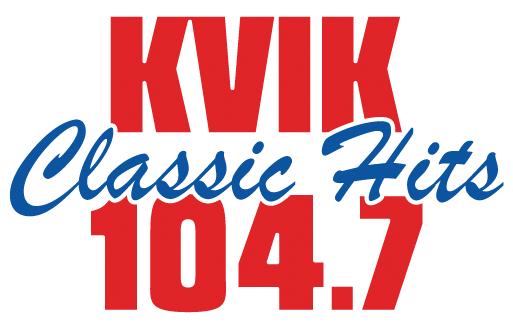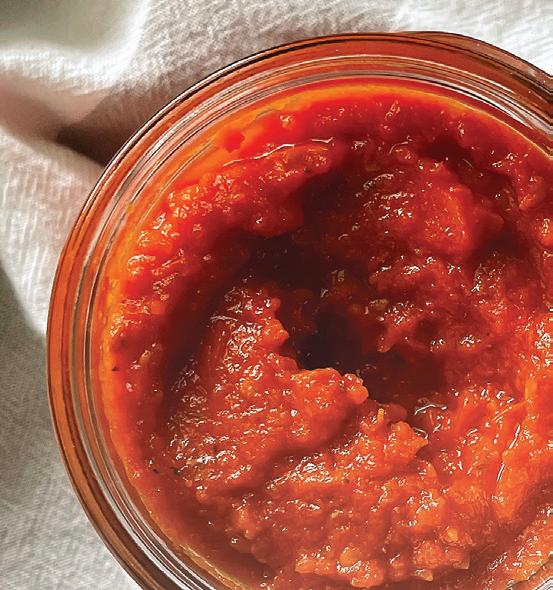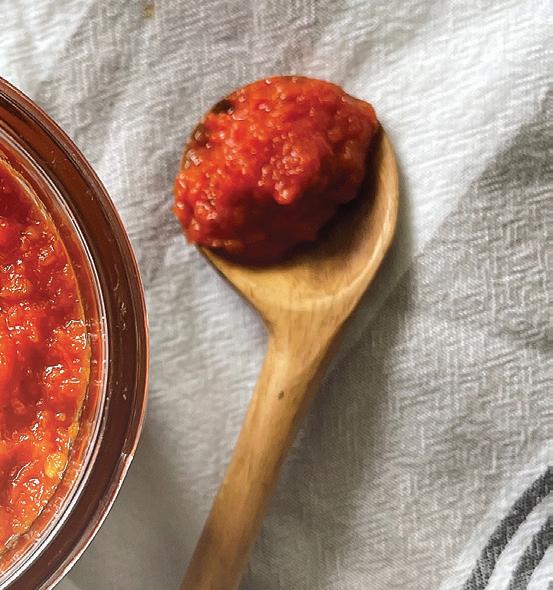driftless





Supply and demand: The cornerstones of every business. Many small business owners grow into their golden years never fully understanding the concepts, while others gain a good grasp of these business fundamentals earlier in life and easily apply them to become young entrepreneurs.
for the trip,” Becca said. “Their dad suggested they should pick and sell worms. So, we got a minifridge and put a sign out on College Drive.”
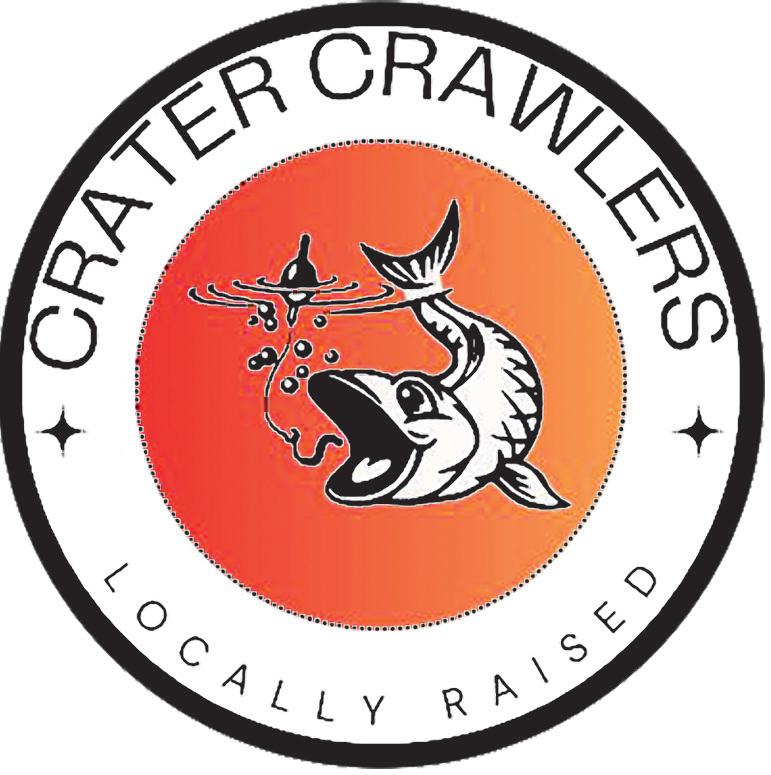
At least, that’s what Decorah brothers Jacob and Ethan Kulish have done with their nightcrawler business.
The two boys, sons of Becca Goettle and Adam Kulish of Decorah, started “Crater Crawlers” in the summer of 2023 as a way to earn spending money during a trip to New York.
“We were going out to Buffalo, N.Y., for a football camp, and I suggested the boys find a way to earn spending money
“We used to pick nightcrawlers after it rained for fishing,” added 14-year-old Jacob. “But, worms are expensive, so we wanted to undercut every price.”
Jacob added that because it rained so little in 2023, Becca was watering their yard two to three times daily so her sons could gather more nightcrawlers to sell at $2 for 15 worms. The result of these simple strategies was that the boys earned $200 in their first month of selling nightcrawlers, and that’s when Becca began considering taking the boys’ business up a notch.
In fall 2023, Becca attended a business conference led by a well-known motivational


speaker, and she said that conference changed the way she looked at the boys’ pasttime of picking nightcrawlers.
“I went to this business conference basically with my kids’ hobby,” Becca said. “After the first day, I realized this could be more than just a hobby for the kids, and on the second day, I got a lot of really good feedback.”
After the business conference, Becca promptly began working on her business idea – transforming her sons’ hobby into a small home-based business. She first ordered about 10,000 baby European nightcrawlers, so they could start reproducing, and in March, she and her boys began selling their first litter of home-grown European nightcrawlers.
“This type of worm (Eisenia hortensis) is just starting to get noticed,” said Becca. “Most people in our area are used to the Canadian







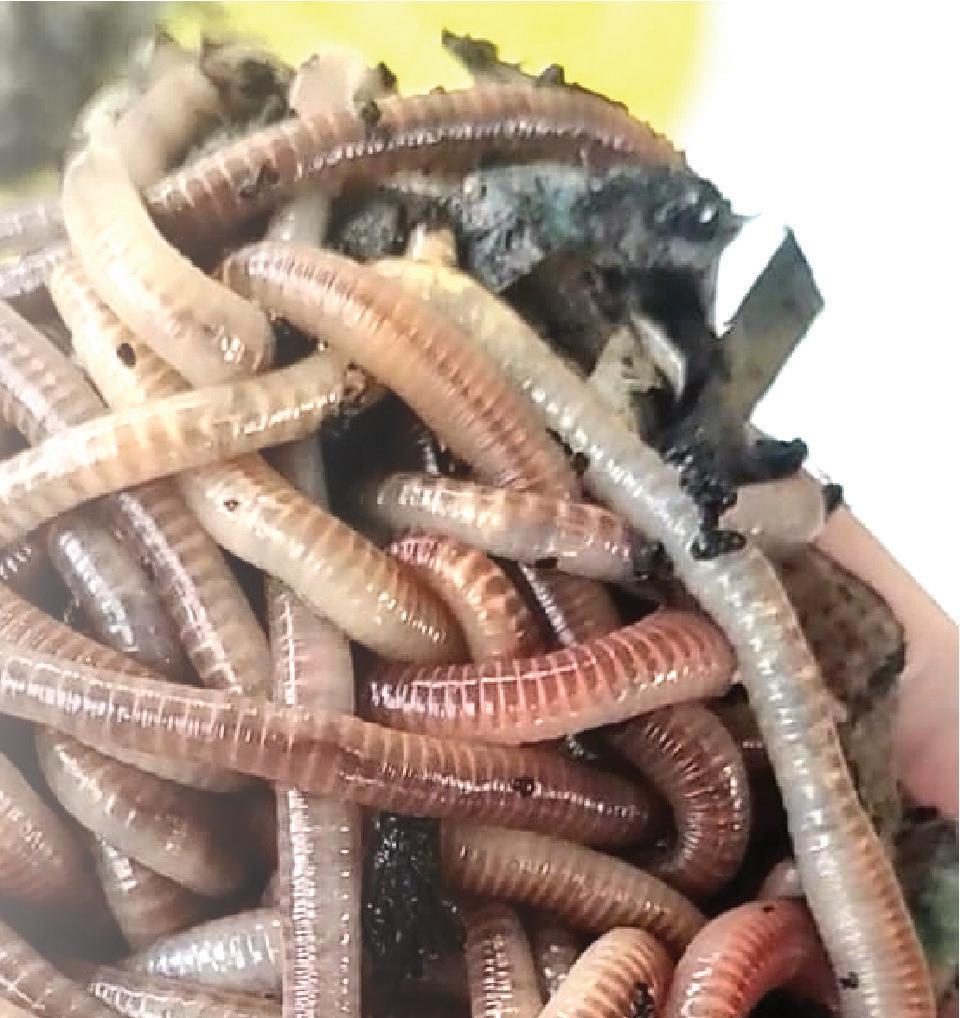
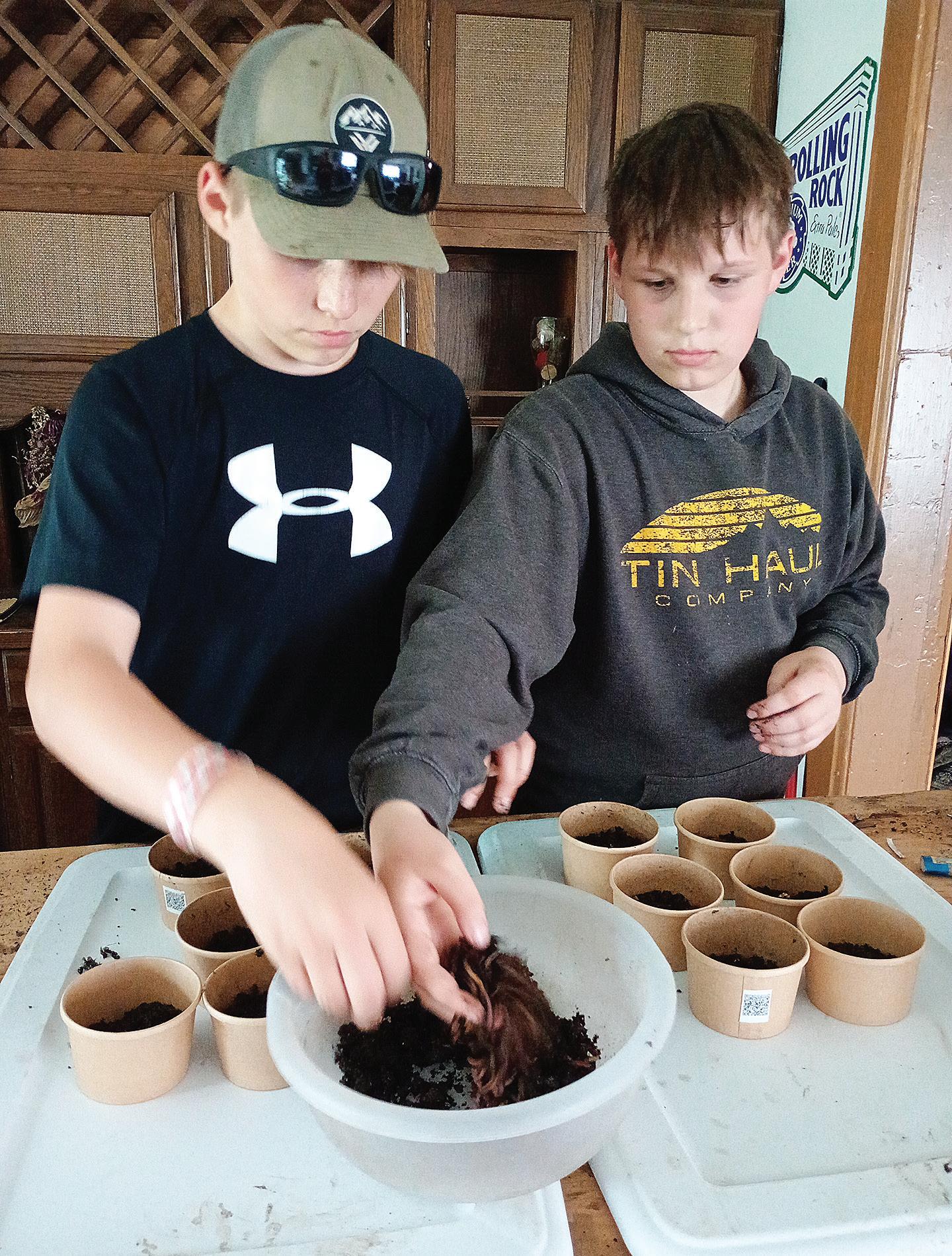

Jacob (left) and Ethan Kulish work together to pack retail containers with European nightcrawlers for their business, “Crater Crawlers”, which sells containers of nightcrawlers in several northeast Iowa retail outlets. The business started as a way for the boys to earn spending money, and in their first month of selling nightcrawlers, they earned $200. (submitted)
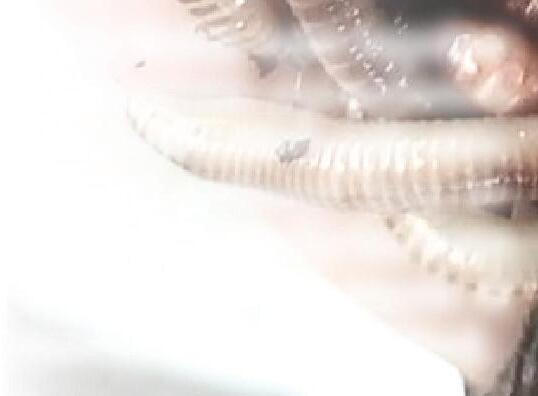
continued on page 2

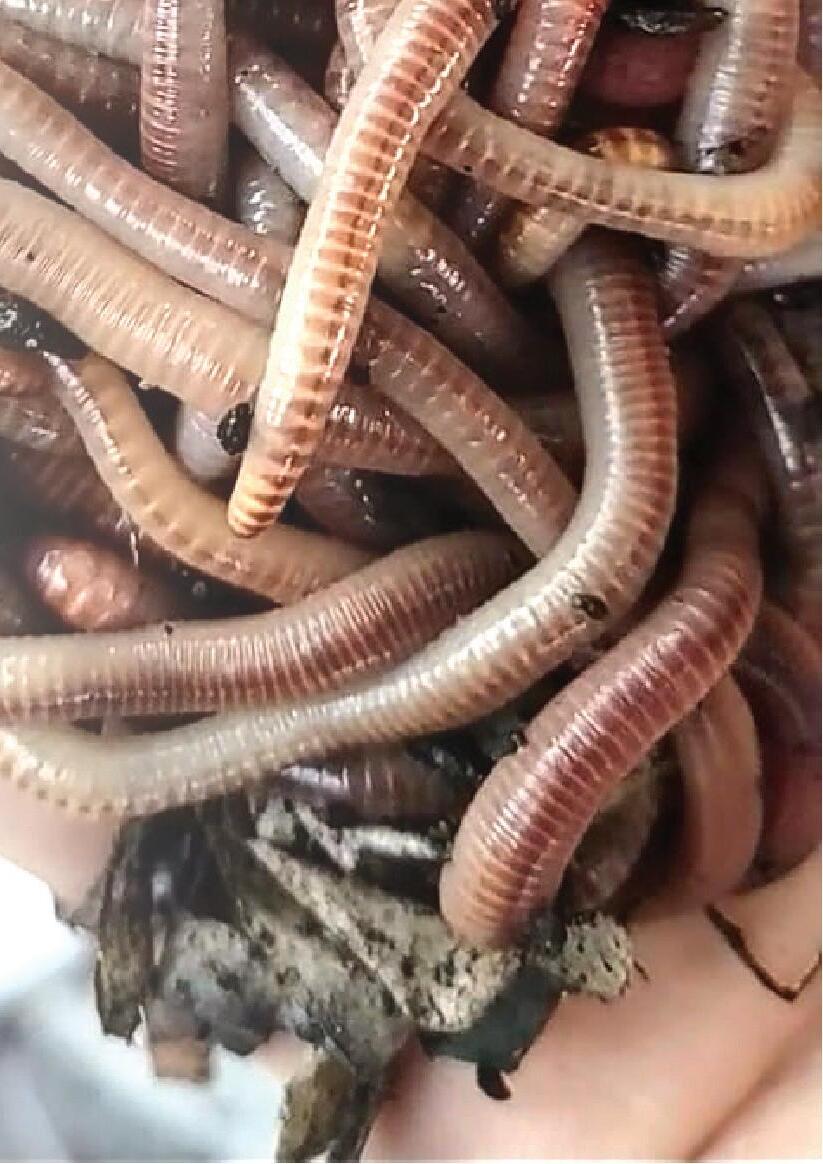
the courthouse square or on Washington Street. A long list of area sponsors help make Lawn Chair Night a popular summer attraction.
Those attending are encouraged to bring a chair or a blanket, pick up some food from a nearby eatery and enjoy the entertainment options.
The schedule is as follows:
June 6: Luke Callen on Washington Street at 6 p.m.
June 13: Kick-off to Decorah’s 175th anniversary celebration weekend with the Decorah Municipal Band at the courthouse square at 7 p.m.
June 20: Family Fun Night with the Decorah Public Library featuring Slapdash Bluegrass at 6 p.m., on Washington Street.
June 27: Root River Jam Duo at 6 p.m., on Washington Street.
July 11: Kelly Hunt, featuring Beth Watts Nelson, at 6 p.m., on Washington Street.
July 18: Nordic Dancers and Orchestra perform at the courthouse square at 7 p.m.
Aug. 1: Joe and Vicki Price on Washington Street at 6 p.m.
Aug. 8: Emmy Woods & the Red Pine Ramblers on Washington Street at 6 p.m.
Aug. 22: Flash In A Pan at 6 p.m., on Washington Street.
Aug. 29: A welcome-back to Luther event featuring Driftless Jazz at 6 p.m., on Washington Street.

It’s all about that sauce!!!

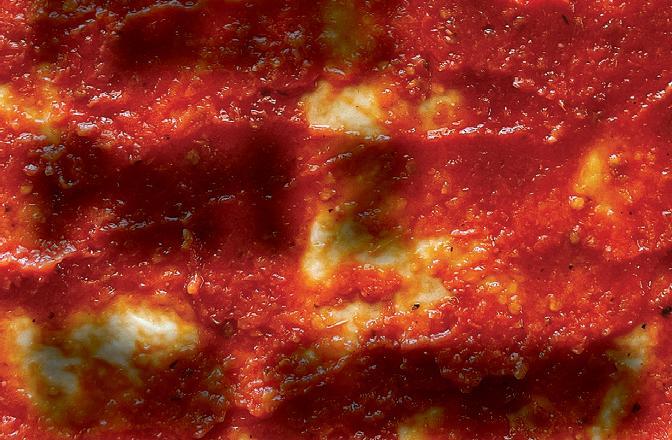 By Jessica Woodward
By Jessica Woodward
The Ossian Educational and Performance Pavilion will again be host to summer performances. The pavilion is located in Carey’s Park on Hwy 52 across from the Casey’s Store. Bring a lawn chair or blanket.
Wednesday, June 19, 7 p.m.: Mike McAbee
Sunday, June 23, 8 p.m.: Movie: Moana
Wednesday, June 26, 7 p.m.: Carter Guse
Sunday, June 30, 8 p.m.: Movie: Dodgeball
Sunday, July 7, 5:30 p.m.: Tom & Betsy Kirby
Sunday, July 14, 5:30 p.m.: Magnolia
Wednesday, July 17, 7 p.m.: Bree & Katie
Sunday, July 21, 8 p.m.: Movie: The Super Mario Bros Movie
Wednesday, July 24, 7 p.m.: Shawn Ster
Sunday, July 28, 8 p.m.: Movie: National Lampoon’s Christmas Vacation
Wednesday, July 31, 7 p.m.: Steve Schroeder
Sunday, Aug. 4, 5:30 p.m.: Bruce Bearinger Band
Saturday, Aug. 10, 8 p.m.: Cory Farley
Wednesday, Aug. 14, 7 p.m.: Beau Timmerman
Sunday, Aug. 18, 8 p.m.: Movie: Mrs. Doubtfire
Performances in the Spillville Summer Concert series take place on Ludwig Stage at Riverside Park, Spillville. Attendees are encouraged to bring a lawn chair. Free will donations accepted.
Saturday, June 16, 3 p.m.: Kris Karr solo acoustic.
Sunday, July 21, 2 p.m.: Casey Klein.
Saturday, July 6, 6 p.m.: Avey Grouws Band. Admission to the Independence Day celebration applies.
Sunday, Aug. 25, 2 p.m.: Wapsi River Ramblers.
Sunday, Sept. 15, 2 p.m.: Woodshed Reboot.
Send your free Summer entertainment schedules to: news@driftlessjournal.com
is a dump recipe. Meaning, you dump it all in a pot and keep doing whatever you were doing! The good news is that most of the ingredients for this recipe are pantry staples. What I like to do is keep a few sets of these ingredients on hand so I can make the sauce at any given time. Or, I make a really large batch and can the sauce already made for an even quicker pizza night. Remember it’s not just the sauce but also the ratio of the crust to the sauce. So, when your sauce is all ready to get put on the pizza,

But seriously, the sauce makes or breaks the pizza. You need to make sure you have not only a really good tasting sauce, but also the right ratio of sauce to crust to prevent a soggy bottom. No one likes a soggy bottom. In this pizza part two you will learn how to make a super simple pizza sauce that you will for sure make on repeat. When I made this sauce recently, we had some company over for our pizza night. And our friend said, “I don’t normally like pizza sauce, but I need this recipe.” So that should really say something! Unfortunately, I don’t have any fond memories of this homemade pizza sauce. But I’m hoping my tiny sous chef will someday. This sauce can come together in as little as 30 minutes. Or you can let it simmer longer if your schedule allows it to for some extra flavor. The longer you let it simmer, the more concentrated the flavor will be. This easy pizza sauce






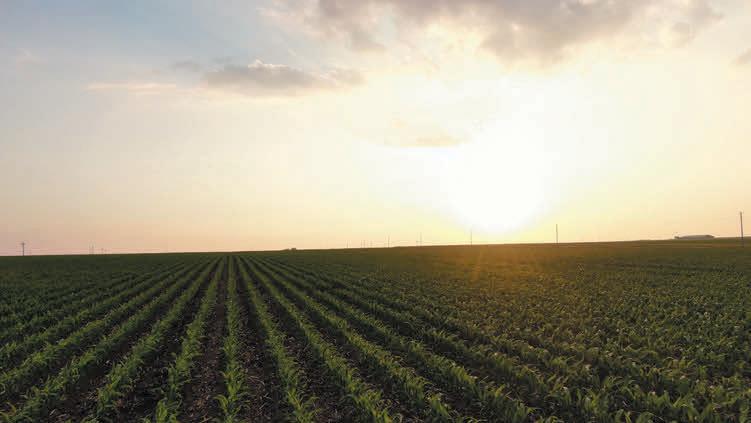




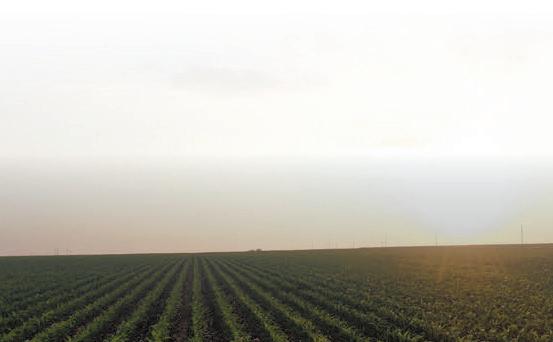


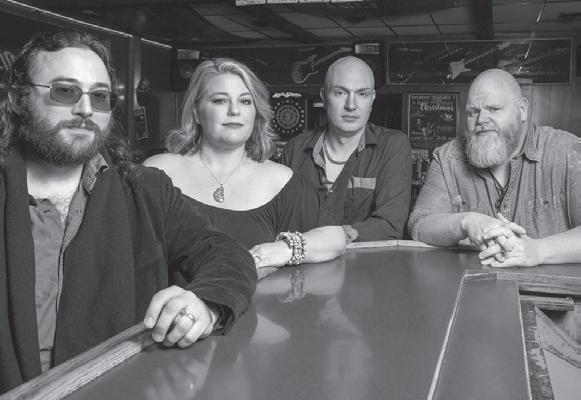
















nightcrawler, which is a big, giant worm. And, around here, because most people are fishing for trout, they have to cut that big worm into smaller pieces. So, because this worm is smaller, it’s the perfect size for trout and even walleye. It’s considered a red worm, and it’s a cousin to the ‘red wiggler’, which attracts fish better because of its color. They’re also a lot more active than European nightcrawlers, which also helps attract fish, and it doesn’t need to be refrigerated.”

Strong Storms wreak havoc
Missing Kayaker last seen near Freeport
Photos from commencement ceremonies at Decorah, South Winn, Turkey Valley and Luther College No immediate changes to rural garbage collection
When considering how to open the business, Becca said she was given a lot of helpful suggestions from various people. For example, Decorah native Troy Roseland suggested the name “Crater Crawlers” – paying homage to the crater in which Decorah is built and combining that with the second half of the word “nightcrawler”. Additionally, another local fisherman recommended that the business only use biodegradable containers.
“That was something I was very adamant about – to have a container that will break down, because a lot of nightcrawlers



Offering Crater Crawlers nightcrawlers in biodegradable containers was a priority for Becca Goetl, Jacob and Ethan’s mother. She said that’s one aspect that sets Crater Crawlers apart from other nightcrawler wholesalers. Another difference is Crater Crawlers’ use of European nightcrawlers, which are typically more pink in color and remain very active while hooked, which reportedly helps attract fish.
something that makes us stand out.”
Something else the family had to learn about was what to feed their worms.
“I ended up getting connected with Reconnected Farms, a mushroom grower out of Dorchester, and I get all their mushroom waste, which is what worms eat,” Becca said.
“About once a month, we
harvest the cocoons and hatch the worms,” she continued. “So, because we raise the worms ourselves, we don’t need to buy or pick worms to sell. Every month, I’m collecting about 50,000 cocoons.”
Currently, the company is selling through several area retailers, including three locations in Decorah, one in Bluffton and two in Cresco. Jacob and Ethan said they’re excited about the business’ success for different reasons.







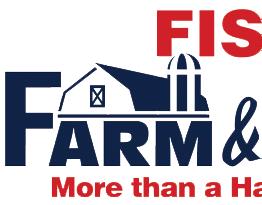









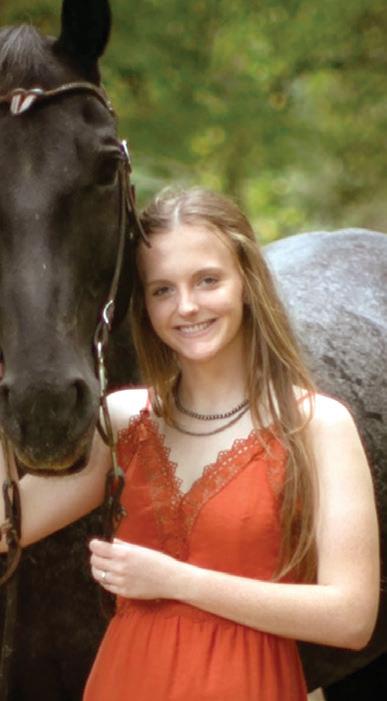



“The other day, I was at school, and three teachers asked me about the business,” said 12-year-old Ethan. “It’s cool to be known for it.”
“I want to see it grow, so we can make more money,” added Jacob. “And, I like that Ethan and I started the whole thing.”
“It’s something the boys are passionate about,” Becca said.
“Kids always want and need money, and this is a way they can buy what they want, and they have a great work ethic. It’s also something they can call their own, because the business wouldn’t have even happened without them.”
Find “Crater Crawlers” on Facebook for more information.

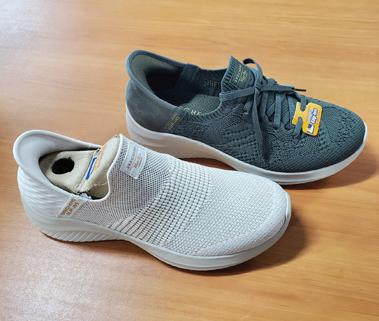
































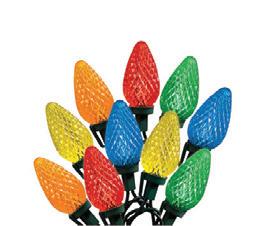

We learned in fall 2022 about Ioponics from its
and
professor Dr. Michael D. Bechtel, Ed.D. The Ioponics system uses 30- to 300-gallon aquariums for raising fish both for consumption and as ornamental pets. The fish consume a completely rationed diet that supplies essential nutrients to feed plants, residing on the surface of the water, in the absence of soil. The aquarium growing the fish sits below a stand, while two rows of plants sit above with a strong LED lighting system. Fish waste is transformed to nitrites (NO21-) with the help of natural bacteria. The nitrites are transformed into nitrates (NO31-) in the same process. The nitrate-rich water nourishes plant roots while sitting on the water in a grid. Fish tank water is pumped through the trough above and dropped into the tank below with less nitrates. An air pump also oxygenates the water for the fish. The automatic nitrogen cycle and continuous water supply encourages extreme growth – aquaponics makes plants grow big…like really big.
Ioponics systems are now in place in 14 states, with Louisiana added as recently as July. Dr. Michael D. Bechtel has been busy presenting his other research endeavors, including biophilia research at the National Association of Biology Teachers (NABT) in Indianapolis, Ind., in November 2022. He placed an Ioponics system in his 12th state before presenting at the conference. In January 2023, Bechtel presented “Ioponics Systems and Learning Cohorts” at the Hawaii International Conference on Education (HICE). While there he used his contacts with Wartburg College, the National Science Teaching Association (NSTA), and NASA to connect with educators in the Kamehameha Schools interested in Ioponics. During his visit, he set up two 40-gallon Ioponics systems and presented professional development for several educators and STEAM administrators, making Hawaii the 13th state to house a system.
While visiting Hawaii, Bech-
it works
tel met Jason Brand, fellow aquaponics enthusiast and owner, on his aquaponics farm where he produces fresh leafy vegetables for Oahu Island. Did you know Hawaii gets the majority of its food shipped in from California? Brand is using his three-acre aquaponics farm to bring agriculture back to the island, and currently produces approximately 25 percent of the island’s consumed greens. He also owns Kō Hana Hawaiian Agricole Rum Distillers, where he produces sugar cane rum. Brand utilizes the region’s great weather by placing 4 ft. x 8 ft. Styrofoam insulation sheets on top of 1 to 3 degree channels filled with 12 in. of water. Tilapia-created nitrates flow continuously in the channels, and sheets float from the higher to lower ends over a two-week period. Each Styrofoam sheet has holes bored where germinated lettuce plugs are grown.
Bechtel and his team also are participating in research through the University of Arizona on a new type of sunlight filtering greenhouse glass that promotes a 20 percent increase in plant growth. Brand connected Bechtel with a UbiQD designer that created the glass, and the Plant Peddler greenhouses in Cresco where the experimental glass is being used. Brand’s ultimate goal is to pass the knowledge on to the indigenous island people so they can grow their own food and become self-sufficient.
Bechtel also was awarded a 2023-24 STEM Scale Up grant (for an unbelievable three years in a row) which means that Ioponics was once again available to all Iowa educational institutions from prekindergarten through 12th grade. This summer, his assistants will produce 60 Ioponics systems with the hopes of getting a system into each of the 29 Iowa counties without one. Iowa currently has over 200 40-gallon Ioponics systems in use in 70 counties. The 1- to 3-gallon microsystems are being used all around the United States. Stepby-step plans are available at wartburg.edu/ioponics.
Other research with Ioponics For the last year and a half, Bechtel has worked with Wart-
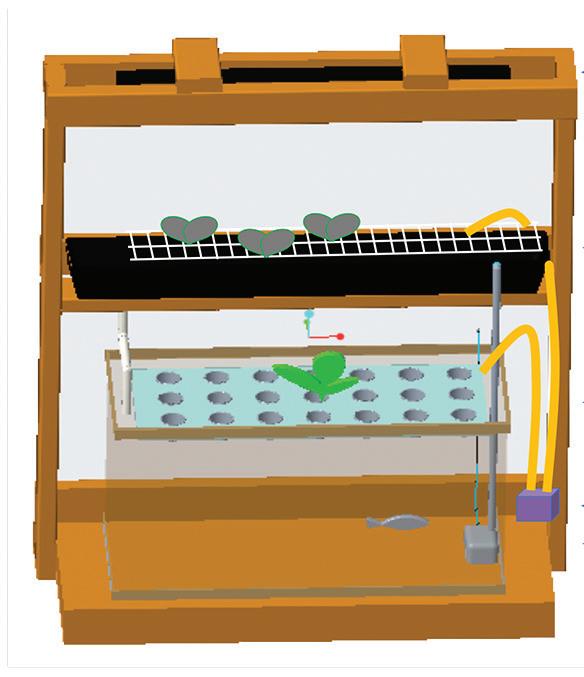
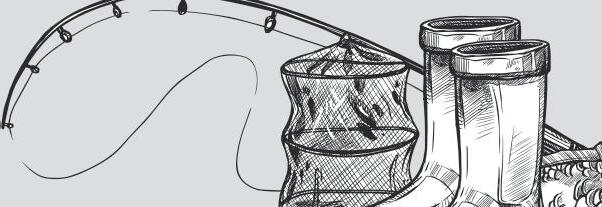


burg College undergraduate students to effectively create a solar-powered/battery-storage Ioponics system for use outside of the normal AC grid. His findings are already being used at a children’s home in Liberia, where electricity is not reliable. The team continues to search for more affordable options for these kinds of systems, as well as look for solutions to the extreme algae growth caused by the additional UV rays from the outdoor installation. Research and design work continues with promise.
In a divergent path, Bechtel worked with an engineering Aquaponics continued on page 7
A 40-gallon Ioponics system just beginning with tomato plants and blue tilapia.


























































We learned in fall 2022 about Ioponics from its
and
professor Dr. Michael D. Bechtel, Ed.D. The Ioponics system uses 30- to 300-gallon aquariums for raising fish both for consumption and as ornamental pets. The fish consume a completely rationed diet that supplies essential nutrients to feed plants, residing on the surface of the water, in the absence of soil. The aquarium growing the fish sits below a stand, while two rows of plants sit above with a strong LED lighting system. Fish waste is transformed to nitrites (NO21-) with the help of natural bacteria. The nitrites are transformed into nitrates (NO31-) in the same process. The nitrate-rich water nourishes plant roots while sitting on the water in a grid. Fish tank water is pumped through the trough above and dropped into the tank below with less nitrates. An air pump also oxygenates the water for the fish. The automatic nitrogen cycle and continuous water supply encourages extreme growth – aquaponics makes plants grow big…like really big.
Ioponics systems are now in place in 14 states, with Louisiana added as recently as July. Dr. Michael D. Bechtel has been busy presenting his other research endeavors, including biophilia research at the National Association of Biology Teachers (NABT) in Indianapolis, Ind., in November 2022. He placed an Ioponics system in his 12th state before presenting at the conference. In January 2023, Bechtel presented “Ioponics Systems and Learning Cohorts” at the Hawaii International Conference on Education (HICE). While there he used his contacts with Wartburg College, the National Science Teaching Association (NSTA), and NASA to connect with educators in the Kamehameha Schools interested in Ioponics. During his visit, he set up two 40-gallon Ioponics systems and presented professional development for several educators and STEAM administrators, making Hawaii the 13th state to house a system.
While visiting Hawaii, Bech-
it works
tel met Jason Brand, fellow aquaponics enthusiast and owner, on his aquaponics farm where he produces fresh leafy vegetables for Oahu Island. Did you know Hawaii gets the majority of its food shipped in from California? Brand is using his three-acre aquaponics farm to bring agriculture back to the island, and currently produces approximately 25 percent of the island’s consumed greens. He also owns Kō Hana Hawaiian Agricole Rum Distillers, where he produces sugar cane rum. Brand utilizes the region’s great weather by placing 4 ft. x 8 ft. Styrofoam insulation sheets on top of 1 to 3 degree channels filled with 12 in. of water. Tilapia-created nitrates flow continuously in the channels, and sheets float from the higher to lower ends over a two-week period. Each Styrofoam sheet has holes bored where germinated lettuce plugs are grown.
Bechtel and his team also are participating in research through the University of Arizona on a new type of sunlight filtering greenhouse glass that promotes a 20 percent increase in plant growth. Brand connected Bechtel with a UbiQD designer that created the glass, and the Plant Peddler greenhouses in Cresco where the experimental glass is being used. Brand’s ultimate goal is to pass the knowledge on to the indigenous island people so they can grow their own food and become self-sufficient.
Bechtel also was awarded a 2023-24 STEM Scale Up grant (for an unbelievable three years in a row) which means that Ioponics was once again available to all Iowa educational institutions from prekindergarten through 12th grade. This summer, his assistants will produce 60 Ioponics systems with the hopes of getting a system into each of the 29 Iowa counties without one. Iowa currently has over 200 40-gallon Ioponics systems in use in 70 counties. The 1- to 3-gallon microsystems are being used all around the United States. Stepby-step plans are available at wartburg.edu/ioponics.
Other research with Ioponics For the last year and a half, Bechtel has worked with Wart-
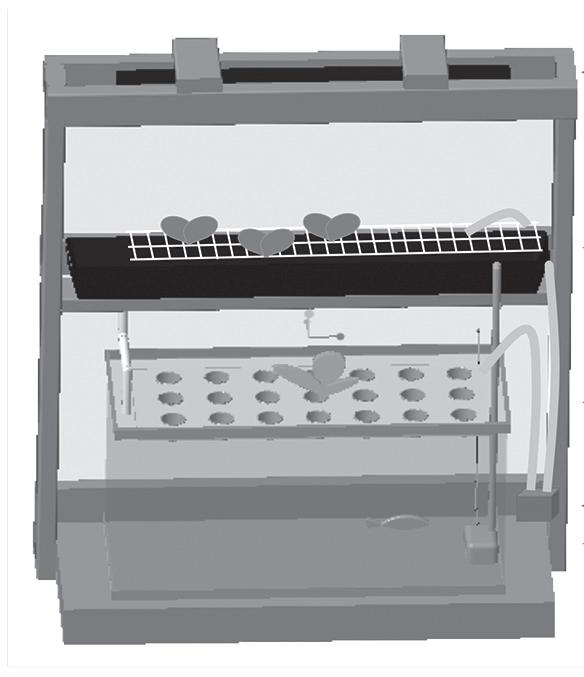



burg College undergraduate students to effectively create a solar-powered/battery-storage Ioponics system for use outside of the normal AC grid. His findings are already being used at a children’s home in Liberia, where electricity is not reliable. The team continues to search for more affordable options for these kinds of systems, as well as look for solutions to the extreme algae growth caused by the additional UV rays from the outdoor installation. Research and design work continues with promise.
In a divergent path, Bechtel worked with an engineering Aquaponics continued on page 7
A 40-gallon Ioponics system just beginning with tomato plants and blue tilapia.
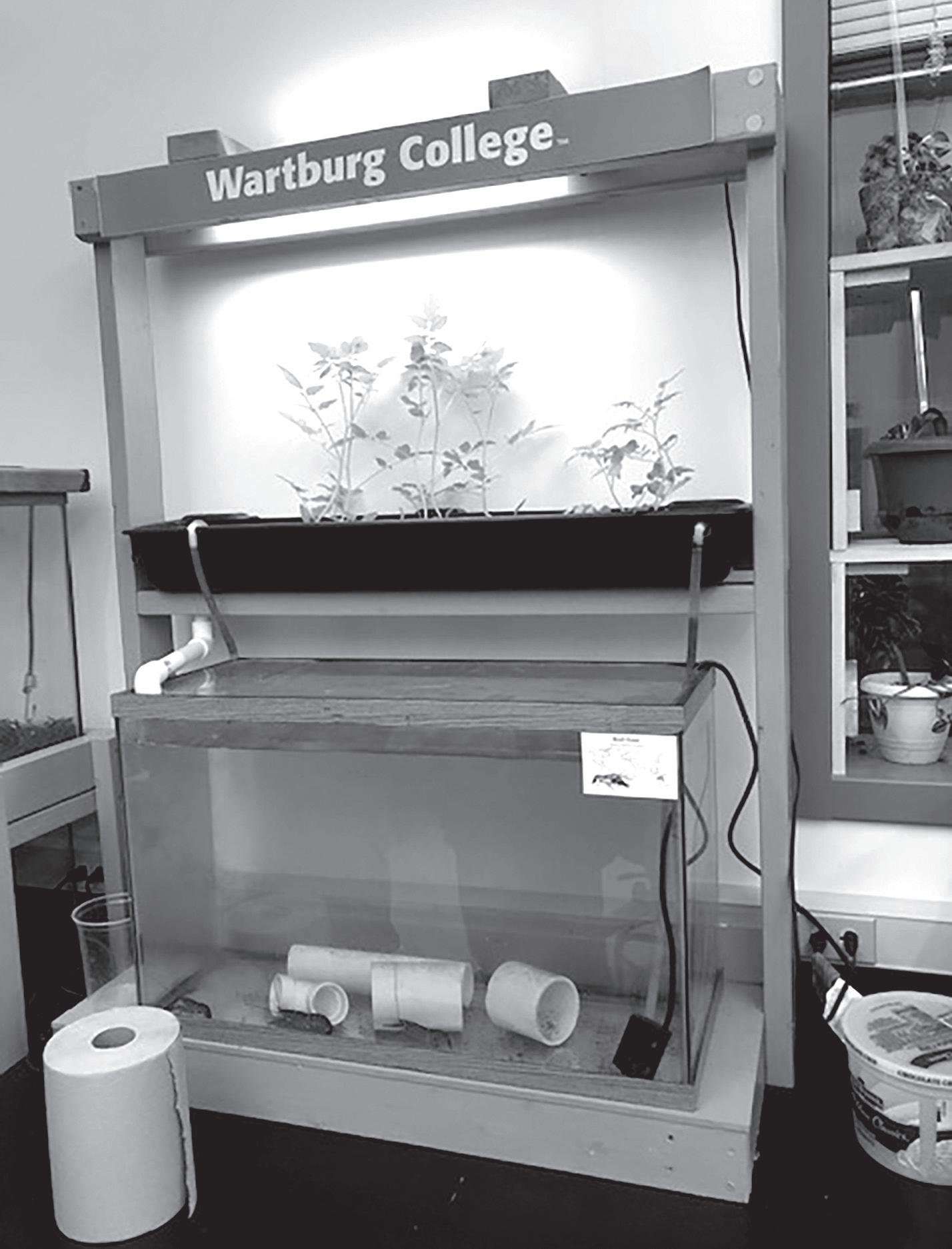
























































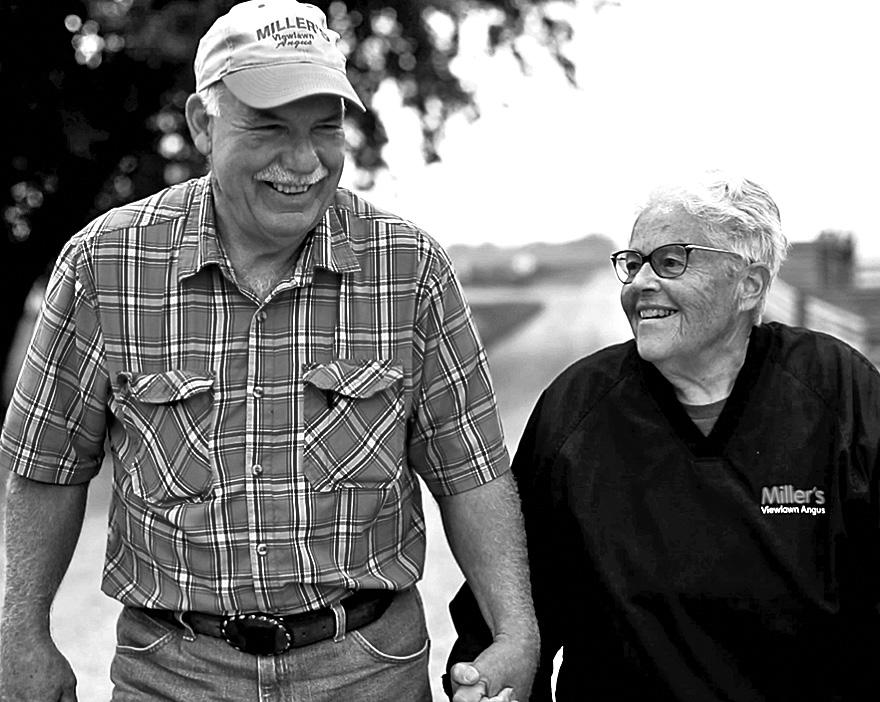
Miller’s Viewlawn Angus has been a family-owned farm in rural Mabel, Minn., since 1866, and in March, the operation was featured in an article and video on the Minnesota Beef Council’s website.
The farm, headed by Larry and Margaret Miller, has been a 100 percent registered Angus farm since 1903, and today, it boasts a 240-head Angus seedstock operation. The eight-generation family farm, which rests on Iowa-Minnesota border, has land in both states and is also home to sheep and hogs.
“Getting to work side by side
Iowa Gov. Kim Reynolds recently signed two bills into law that were high priorities for the Iowa Cattlemen’s Association (ICA). Showcasing the importance, a large crowd gathered at the Pat and Laura Blomme farm to witness this notable event.
The Meat Integrity Bill (S.F. 2391), led by Sen. Dawn Driscoll (SD-46) and Rep. Heather Hora (HD-92), protects against the misbranding of fake

meat products and keeps experimental, lab-grown protein out of supplemental nutrition programs and schools.
During the signing, Reynolds said this bill is about transparency, ensuring consumers are told exactly what they are getting. She went on to say that it is just common sense that when a product is labeled as beef, pork or chicken, it should come from an animal.
“The Meat Integrity Bill means that Iowa cattle producers are going to be relevant in the future,” said Dan Delaney, an ICA member from Jefferson County. “It means we won’t have others trying to sell a product in the state labeled as beef, pork or chicken if it doesn’t come from that animal. This means a lot to the entire livestock industry.”
our product. It makes sure that imposters and wannabes aren’t thrown into the mix. And that the purity and quality of our product is represented the way it was meant to be.”
The second bill, H.F. 2649, was managed by Sen. Driscoll and Rep. Derek Wulf (HD-76) and prevented a new tax on producers by reinstating the livestock capital gains deduction.
Reynolds shared that this bill will save producers collectively more than $18 million by 2030. She said that this bill prevents the net capital gain on the sale of livestock from being considered individual income for tax purposes.
with your children and grandchildren on a daily basis is the greatest gift of God,” Larry said in the Minnesota Beef Council article. In addition to the article, found at https://mnbeef.org/ raising-beef/meet-minnesota-producers/millers-viewlawn-angus, the Minnesota Beef Council also made a 3.5-minute video about the Millers’ operation and their family.
Chris, Larry and Margaret’s middle son, said in the video that his favorite part of raising a family on the farm is what he experienced, when he was
growing up. “Just being out here in God’s country, working with animals, learning the basics of raising your food and caring for it and just being out in the fresh air,” he said.
“You take care of the land, it’ll take care of you,” Margaret added in the Beef Council’s video, which can be found at https://www.youtube.com/ watch?v=_zoRWWAosq8.
“They contacted us and wanted us to do it, and we thought it was real good,” Miller says of the Beef Council’s coverage of his family’s operation.“We’re real satisfied with it.”
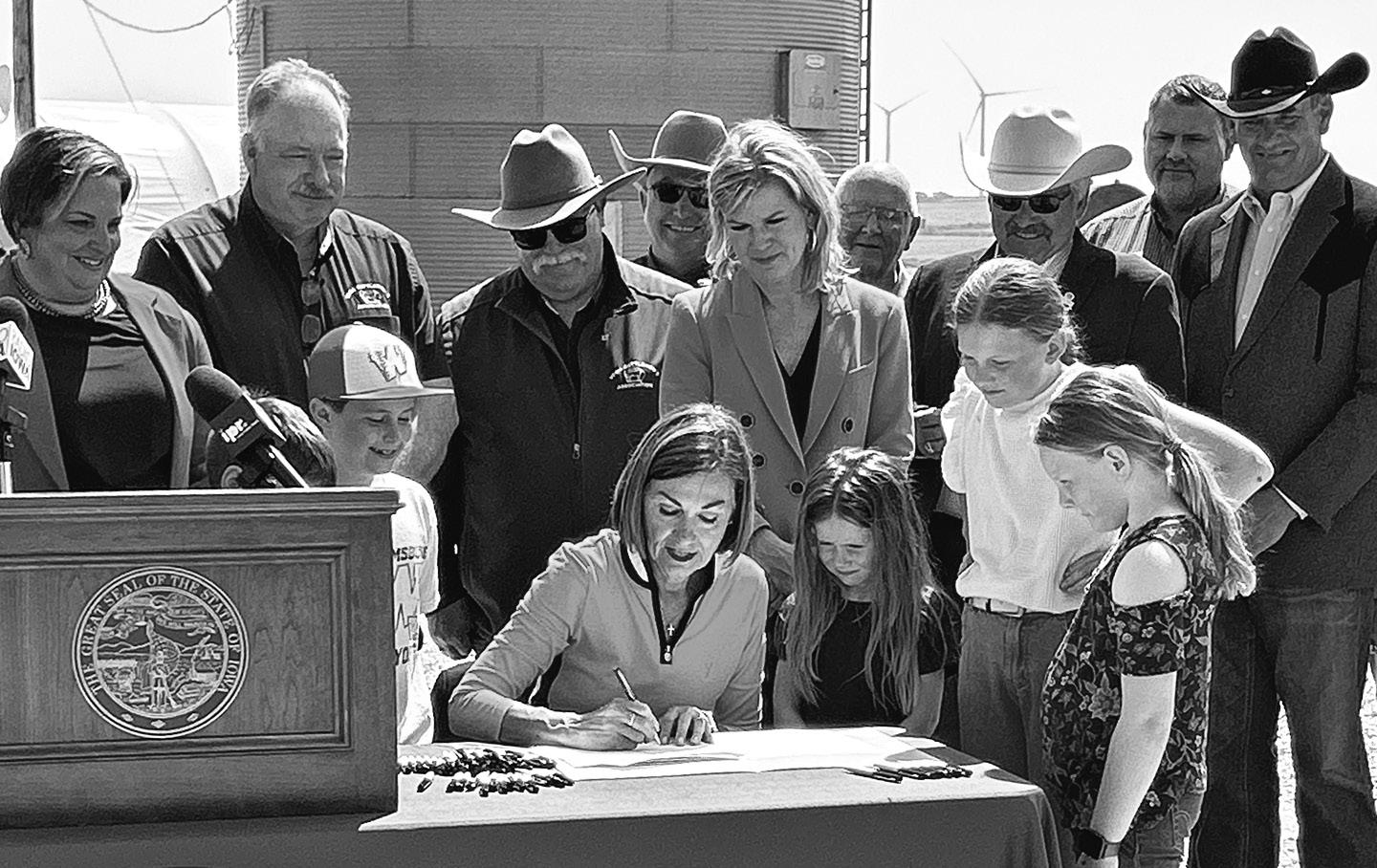
fruition validates the continued commitment by the governor and state legislators to the Iowa beef cattle industry and agriculture as a whole. ICA’s work in the Iowa Statehouse provided meaningful advocacy that increased profitability for producer members and protected their livelihood for generations to come.





Steve Swenka, an ICA member from Johnson County added, “This bill ensures the integrity and wholesomeness of
Delaney and Swenka echoed the positive financial impacts for producers referenced by the governor. They said that the signing of this bill was a great victory for today’s producers and future generations of livestock producers.
To see these two bills come to
“It was a beautiful day, and while I wish I could have been in the field, it was nice to be
here to see the support for all agriculture,” said Delaney. “I also enjoyed having the signing on an operation with the family atmosphere, the kids here and the beautiful location. This is what Iowa is all about.”
“It’s a great day,” said Swenka. “It’s not every day that you get to see a bill signed into law in person. To actually see it happen after following it so closely for two years is very gratifying and rewarding.”
Pork producers across Iowa donated more than $43,000 worth of pork to local food pantries recently in conjunction with the Pork in the Pantry program, organized by the Iowa
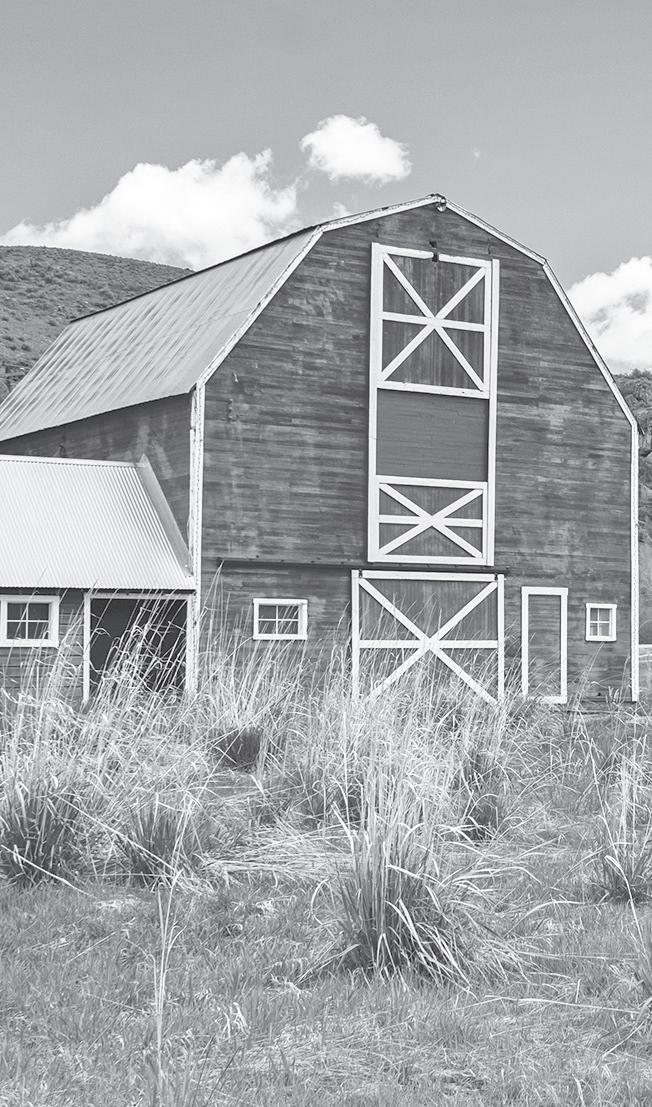
Pork Producers Association (IPPA).
Now in its second year, Pork in the Pantry provides funding of up to $1,000 to each county pork producer organization that par-



ticipates. Counties are responsible for purchasing the pork and donating it, and IPPA reimburses them. This year, 38 county producer organizations participated in Pork in the Pantry.
“Food insecurity remains a major issue in Iowa and these donations to local food pantries will help,” said Matt Gent, president of the Iowa Pork Producers Association. “Pork producers care a lot about their communities, and this is one of the many ways we show it.”
Along with donating much-needed protein to local food pantries, many county producer organizations purchased the pork from local vendors. Food pantries are frequently short of meat products, so this is a great way to get nutritious protein into the diets of food-insecure Iowans.
“Hunger is rising in Iowa,” said Linda Gorkow, executive director of the Iowa Food Bank Association. “This Pork in the Pantry program is an incredible opportunity to ensure greatly needed protein is provided to families, individuals and seniors who don’t have enough food to eat. Protein is one of the highest requested items at food banks and pantries across the state so every ounce of the pork donated to the pantries serving Iowans will make an incredible impact.”
The $43,000 worth of pork will provide an estimated 55,000 servings of protein for Iowans who are facing food insecurity.
Last year’s Pork in the Pantry program resulted in more than $40,000 worth of pork being donated to local food pantries.
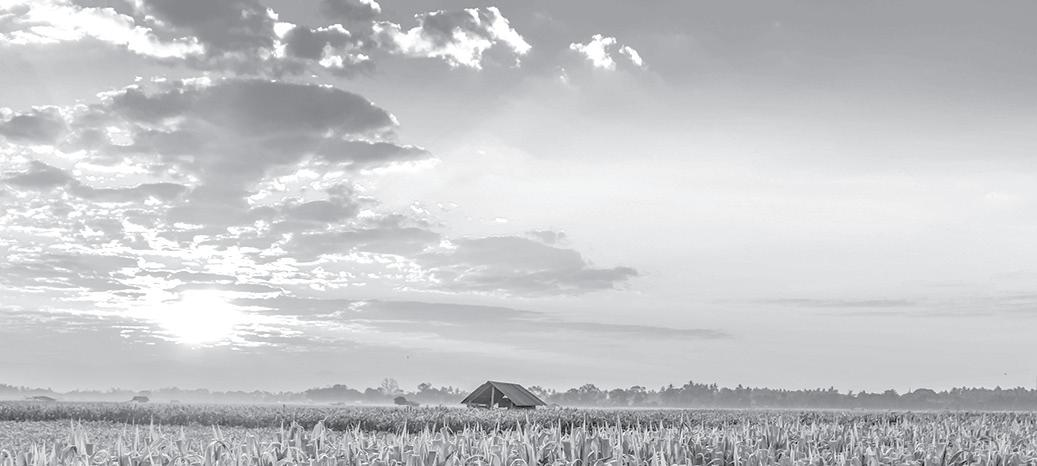








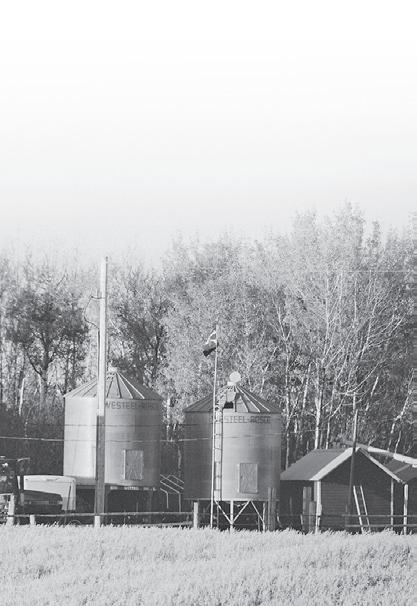










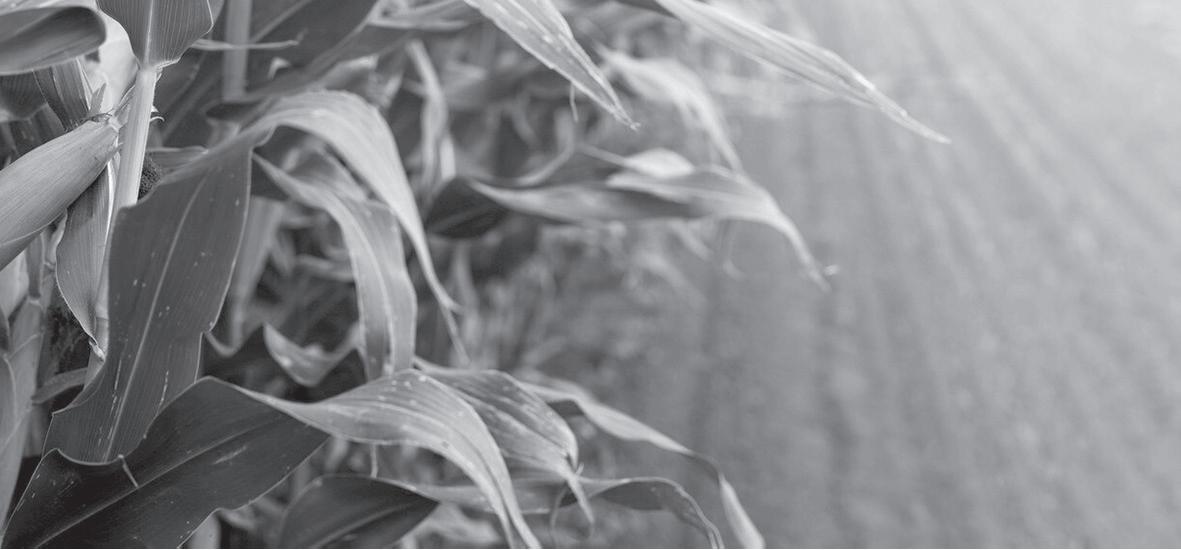


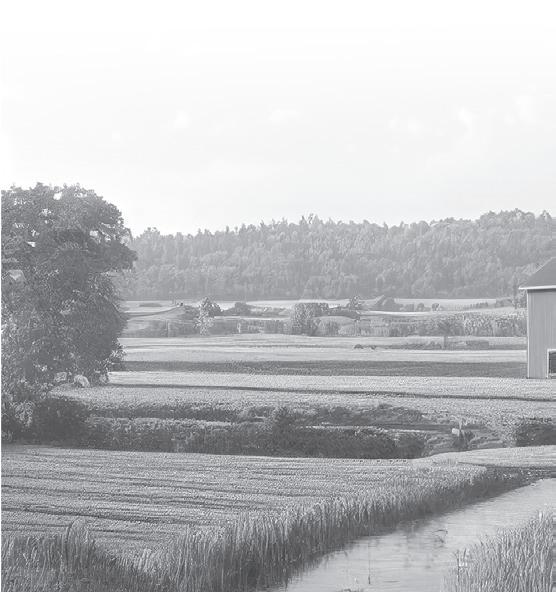
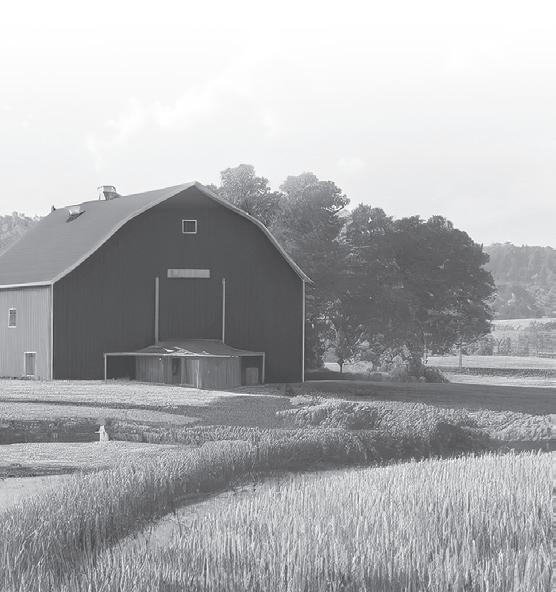



Although they wear many hats, perform many jobs and are referred to using many terms, it turns out the people who grow Iowa’s crops and livestock prefer to be called “farmers.”
The 2023 Iowa Farm and Rural Life Poll was released this winter and asked those surveyed what they preferred to be called. Some 75 percent said they prefer to be called a “farmer.” The term “farm operator” was a distant second, at only 10 percent, followed by even less popular names like “producer, grower and rancher.”
While the name may not seem like that big of a deal, it’s actually an important part of communicating with “farmers.”
“I work with a lot of people who work with farmers, and I hear them use different terms like ‘grower’ and ‘producer’ to refer to farmers. So, I decided to ask farmers what they prefer to be called,” said J. Arbuckle, rural sociologist with Iowa State University Extension and Outreach and lead author for the poll. “Turns out they prefer to be called farmers, by a long shot. That’s important to know because to communicate effectively with audiences, we need to use terms that resonate with them.”
Some of the issues this year’s poll examines include climate change, soil and water conservation, rented land, woodland ownership and management, and markets for non-GMO corn.
This year’s survey is based on responses from 972 farmers. Nearly all (90 percent) plant corn or soybeans, and about half
(47 percent) raise livestock. New this year is a series of questions related to woodland ownership and management.
“Many farms have at least some woodland area, so we wanted to gain a better understanding of how that is being managed and the types of resources landowners are using,” said Billy Beck, forestry specialist with ISU Extension and Outreach. “These results will help us improve how we work with farmers who have woodlands.
Also new – the poll examines markets for non-GMO corn, in response to countries that have banned the import of GMO corn.
Nineteen percent of farmers reported they were interested in contracting to grow non-GMO corn for export, while 54 percent said they were not and 27 percent said they were unsure.
Arbuckle said the Farm Poll is a great way for farmers to make their voices heard, while helping to contribute to a better understanding of challenges and opportunities in Iowa agriculture.
“The benefit is that farmers can confidentially share their perspectives on issues that impact their livelihoods, and the results help guide policy and program decisions that keep agriculture vibrant into the future,” he said.
Detailed results from the poll will be examined in future news releases from ISU Extension and Outreach. The full report is available from your ISU Extension and Outreach county office, the ISU Extension Store, the Extension Sociology website or from the authors.
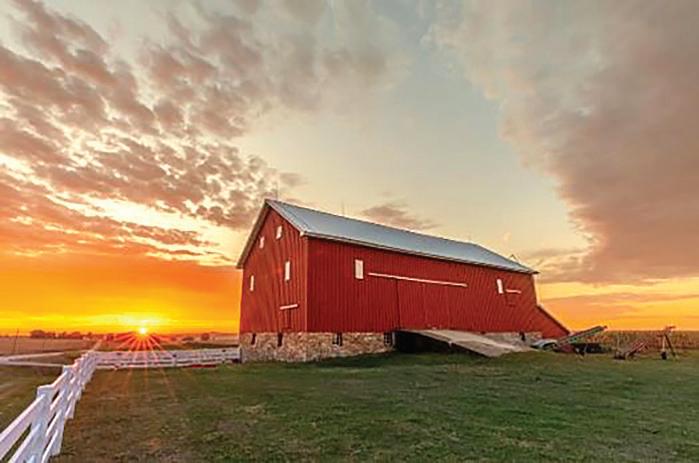
The Frost Barn at 1745 E. Eagle Rd, Waterloo was built in the 1870s and measures 88’x40’x40’. The barn, which has been in the owner’s family since 1946, was completely restored in 2018. An Amish construction crew toiled for seven weeks taking off the old wood, replacing damaged beams/ supports, and putting on all new southern yellow pine siding shipped in from Oregon. With a couple of coats of red paint and the tuckpointing of the three-foot thick limestone walls, the barn looked like new. Original use was horses and milk cows. The barn now houses Suffolk sheep.
The Iowa Barn Foundation is holding its annual Spring Barn Tour June 22-23. The barns will be open for self-guided tours from 9 a.m. to 5 p.m. both days.
This year’s tour will be held in the Waterloo area with barns in southern Black Hawk and northern Tama Counties. There will be 11 historic barns open to tour inside and out, and the owner will be on hand to share the structure’s interesting story and answer questions.
Visitors will experience a diverse array of barns including a rare round barn and a barn with walls made from locally harvested fieldstones. Many are still in use, providing the opportunity to encounter bison, Suffolk sheep, Babydoll
sheep, American Cream draft horses, American Paint horses, chickens, ponies and farm cats. American Cream draft horses originated in central Iowa, and they are the only work horse breed developed in the United States.
The self-guided tour is free, made possible by the foundation’s member donors. A Saturday lunch will be offered for a fee and will include a pork loin sandwich, cheesy potatoes, baked beans, a cookie and a beverage (soda/water).
Full tour details and a tour map can be found at iowabarnfoundation.org/barn-tours E-mail questions to iowabarnfoundation@gmail.com
Iowa Secretary of Agriculture
Mike Naig announced recently that the Iowa Department of Agriculture and Land Stewardship has awarded 26 Choose Iowa Value-Added Grants to Iowa farmers, small businesses and non-profits in 22 counties totaling $463,000. Those grants will help leverage a total investment by grant awardees of $1,993,190.47. The Choose Iowa announcement was made as part of Iowa Ag Week during an event at Cortum Farm and Co. outside of Indianola, one of the 2024 grant awardees.
Choose Iowa Value-Added Grants awarded to area producers include:
• Luna Valley Farm Kitchen LLC, Decorah: $25,000
• Oak and Olive Flowers, Decorah: $2,328
• Sweet Season Farm, Calmar: $15,805
• Tailwind Acres LLC, Cresco: $2,418
Choose Iowa is the state’s signature brand for Iowa-grown, Iowa-raised and Iowa-made products. These cost-share grants, which match up to $25,000 per project, were created to assist Iowa farmers, businesses and non-profits increase or diversify
their agricultural product offerings, expand markets and shorten supply chains.
This year’s grants will support a wide variety of projects including delivery and cold storage for direct-to-consumer meat sales, fruit production and processing, vegetable processing, packaging equipment, cider and wine canning and bottling, farm store and food hub construction, honey production, culinary herb, lavender and cut flower production, warehouse capacity, cover crop seed distribution, and agritourism opportunities, and much more.
“Consumers are continually looking for more Iowa food, beverages, and ag products to enjoy and these Choose Iowa
Value-Added Grants will help Iowa farmers, small businesses, and non-profits build that supply,” said Secretary Naig. “We are so pleased to provide these Choose Iowa cost-share investments because they will enhance the availability of Iowa products while creating positive economic activity in communities, big and small, across our state.”
Grant funding, for example, could be used to add new processing, packaging or sales techniques that add value to crops, livestock and other products. A farmer may invest in an onfarm store or cold storage to sell meat, eggs or produce direct to consumers, or a produce grower may upgrade their commercial kitchen to process larger quan-
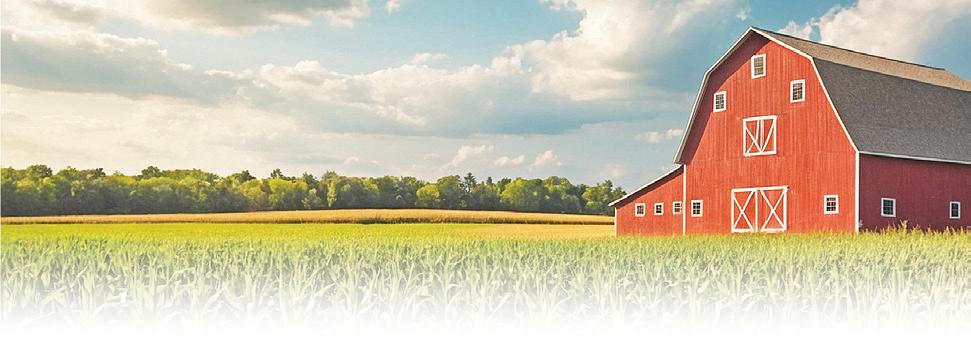



tities of seasonal produce. Grant funding could also be used for employee training and continuing education. Meat processing and dairy processing projects were not eligible for Choose Iowa Value-Added Grants as separate dedicated grant funding programs are available for both. Individuals, businesses and non-profit organizations that are currently living or operating in Iowa were eligible to apply and preference was given to small to medium-sized entities. This year, the Iowa Department of Agriculture and Land Stewardship received 63 eligible grant requests totaling $1,130,139. The grant program remains highly competitive, given that requests far exceed the available funding of $463,000.
Since the launch of the grants in 2022, $1,173,690 in Choose Iowa Value-Added Grants have been awarded to 67 projects which has leveraged a total investment of $4,268,099.19.



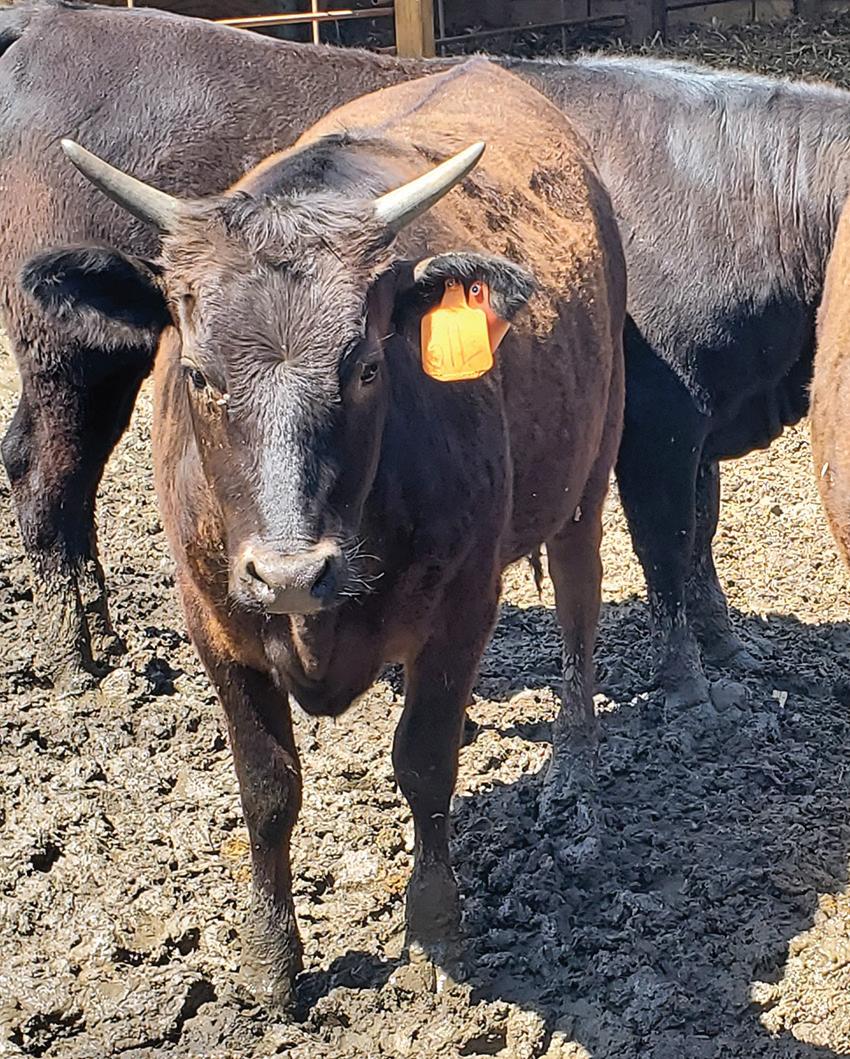



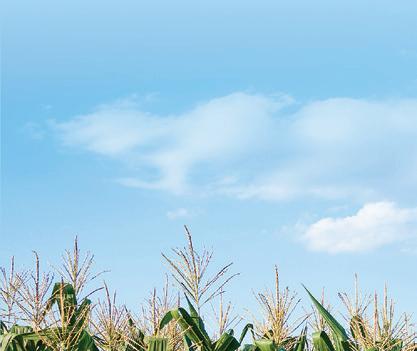
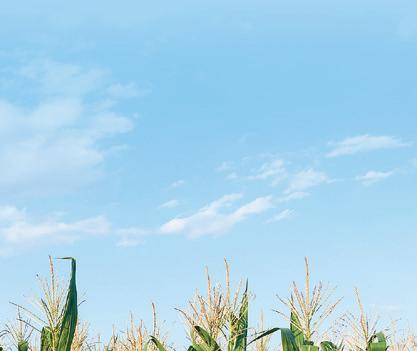

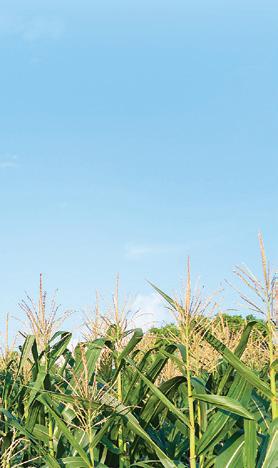




FOREFRONT SUSPENSION SYSTEM
2-BELT i CD CUTTING SYSTEM
HYDRO-GEAR ® ZT-4400 ™ TRANSAXLES
52" / 61" DECK WIDTHS

























research group to create a floating aquaponics system, initially intended to assist in lowering nitrate concentrations in farm ponds. Not only was exponential plant growth achieved, but the floating gardens provided cover for fish. The project should enhance the natural ecosystem by allowing the plants and fish to access the nutrients before they seep into the groundwater supply. The team is now seeking a way to scale the system without a major increase in unit cost. Bechtel added, “I’m always looking for the cheapest, most effective way to build, package, and ship these systems.” The floating systems utilize PVC, and Bechtel is trying to find an adaptable, eco-friendly swim bladder. This project has another summer of testing planned. Continued research on the efficiency of high dollar crop propagation, such as lavender and ginseng, is also being investigated.
The 40-gallon Ioponics systems are being tweaked to grow
continued from page 3
diverse aquatic animals, including shrimp, crayfish, lobster and eels. The one-gallon systems are also testing grounds for micro ecosystems with the addition of multiple species – snails, guppies, amphipods, mos and several types of native freshwater inhabitants for a more robust learning experience.
Bechtel also is attempting to raise a series of perennials, like pineapple, strawberries, Malabar spinach and woody-stemmed plants (wolf berries, currants, grapes, etc.) in Ioponics systems. The challenge is finding determinate species (only grow to a defined height/length) of plants that do not overtake the system and still provide food.
Bechtel and his team of Wartburg College students and colleagues continue to tackle problems to find solution, and create practical, effective products that push the boundaries of agricultural technology in their quest for readily available food for all.
Northeast Iowa Community College (NICC) recently reported that on Monday, May 20, an administrative law judge issued a decision that said the school had just cause to terminate the employment of its past president, Dr. Herbert Riedel. Riedel’s employment with the school was terminated in November 2023, and Riedel has been contesting his termination ever since.
According to a press release from NICC, the grounds used to justify Riedel’s termination included failure to make satisfactory improvement in areas of expectations identified in the evaluation and performance action plan, including:
• Build and sustain trust with all stakeholders and particularly
with members of the leadership team and all staff levels;
•Build and sustain an open, respectful and diplomatic relationship and reputation among staff and students; •Improve communication with and develop and strengthen bonds with community partners.
Pursuant to Iowa Code section 279.24, Riedel has 30 days to appeal the administrative law judge’s decision to the NICC Board of Trustees for reconsideration and review, and Riedel said he and his attorney are considering appealing the decision.
“I disagree with Judge Lindgren’s decision,” Riedel said.
“The Board of Trustees hired me on a three-year contract to provide leadership and advance
the college. The purpose of a multi-year contract is to allow a leader to make the hard but necessary decisions required for effective leadership — which is precisely what I did.
A clique of unaccountable administrators felt threatened by my changes and rebuilding of the leadership team, which they felt diminished their control of the institution. Consequently, they misled the board into taking its rash and unwise actions against me. The vast majority of college employees appreciated my changes and the direction the College was heading. This decision can be appealed, and
am consulting with my attorney about all legal options available to us.”
The reintroduction of wild turkeys to Iowa’s landscape has been celebrated as a conservation success story for the past 25 years. But, Iowa’s turkey population is showing troubling signs: The numbers are down, nests are failing and fewer poults are surviving. And, it’s not just an Iowa problem — turkey populations are declining in all states in the Midwest and across the eastern half of the United States.
A group of Midwestern states met in North Dakota in 2023 to discuss turkey population concerns and projects that are planned and underway. Missouri has had a decades-long study, while Ohio, Nebraska and Wisconsin are all in the early stages of projects. In the southeast, Tennessee is looking at harvest seasons impacts, and Auburn University is looking at male fertility rates in Alabama, and there are more.
In 2022, the Iowa Department of Natural Resources (DNR) began a 10-year study of the turkey population in southeast Iowa to learn more about why the numbers are declining. Now entering its third year, researchers may have more questions than answers.
Dan Kaminski, wildlife research biologist with the Iowa DNR, is leading the study and what Kaminski and his fellow researchers have learned is that only around 60 percent of Iowa hens survive annually. Of the hens that were alive on April 15, roughly 25 percent will not nest, which is above what other researchers are finding in other parts of the country.
Researchers observed 60 nests last summer and documented 10 nests that hatched. Of those 10 nests, only 30 percent of the broods survived at least one poult into August. All of the unhatched eggs collected from lost nests were sent to the University of Tennessee for examination and all were determined to have been fertilized.
“These are concerning findings, but the study only goes back two years,” Kaminski said.
“The 10-year study will get us out of any short-term weather patterns that affect turkeys and provide clearer long-term data trends.”
So, what is killing them? Environmental factors? Lack of available food? Predators? Abandonment?
The project Researchers in Wisconsin found that to sustain its current population, hen turkeys need to average 2.6 poults per hen. The recent trend in Iowa’s summer turkey brood survey has hens averaging two poults per hen. To find out what is causing nest failures, poult mortality and why a quarter of the hens are not even attempting to incubate a nest, researchers will be catching hens in late January and February, outfitting them with transmitters and releasing them.
“Cold and snowy conditions are best - that will group up the
birds,” he said. “Our local staff have trail cameras set up at wintering sites and once the birds show up, we head to the sites and trap the birds.”
Nesting season begins in late April, peaks around May 20, and ends in mid-July. Turkeys nest on the ground, usually in dense vegetation underneath shrubs or trees in overgrown fields or mature forests, relying on their natural camouflage to avoid predators. The transmitters update hen location every 15 minutes and once it appears hens are on a nest, Kaminski will mark and date the location, and then wait.
Hens will lay one egg every day-to-day-and-a-half, averaging 12-14 eggs per clutch. Eggs incubate for 28-30 days before hatching.
After hatch, little by little, she will slowly begin to move her brood away from the nesting site. Once she is on the move, researchers will go in to check nesting success, collect any unhatched eggs as well as any eggs that appear to have been broken or eaten.
“With the new technology –the satellites and gps - it makes collecting highly detailed data much more available,” he said. “When birds set up nests we want to know about it – if it fails, is predated, or abandoned, we want to know ASAP – we want to get to the nest to see what happened and collect the eggs for analysis.”
This year, they will attempt to catch 83 adult and juvenile hens across all sites in Lucas, Van Buren, Louisa and Jackson counties. These birds will join the roughly 55 birds that are currently “on the air.” The goal is to maintain 25 birds with transmitters in each county.
The study area is a mosaic of grassland, agriculture and timber that should be producing turkeys – but is not. And the issue is not isolated to southeast Iowa, other well-known turkey spots in northeast Iowa and the Loess Hills are also seeing the same declines. “But those areas started with more birds so the population decline isn’t as obvious,” he said.
Looking for answers
“We get comments at public meetings and through social media focusing on bobcats, eagles, coyotes and other predators as the reason for the population decline. Poults are ground bound and vulnerable for the first four weeks before they can roost in a tree so there is no question that predators impact turkeys through nest predation and poult predation. But this long-term decline goes back to pre-bobcat days, back before the fur market crashed in 2015, before carnivore populations increased,” he said. “The population decline likely began in the late 1980s and it may simply be due to a changing landscape that has less carrying capacity and that this is just nature’s way of finding a new normal for the population. However, it is probably a com-
bination of factors. Predation is an obvious cause to detect; what we don’t want to do is miss one of the other factors.”
It could involve habitat loss. It could also involve a new disease.
That new disease - Lymphoproliferative Disease Virus (LPDV) - was first detected in North America in 2009 in Arkansas and has since been found across the Eastern U.S. and statewide in Iowa.
Lymphoproliferative Disease Virus has been studied by the domestic poultry industry which found that chicks and poults die within six weeks of contracting it. “The question is, can an LPDV positive wild hen pass the disease on to her poults?
We don’t know. We also don’t know if it’s 100 percent fatal in the wild like it is with domestic poultry,” he said.
LPDV is not known to be a health concern for humans.
There are other theories being explored in other regions of the country. Some research in the southeast U.S. is looking at the timing of the hunting seasons potentially disrupting breeding and removing dominant birds from the population before they can pass on their genetics.
But Kaminski has his doubts.
“We’re not sure about this theory but it is being discussed,” he said. “Our study doesn’t include males so I’m interested in what they find. More so than genetics, it may be that early and prolonged disturbance during the egg laying period is disrupting hens.”
Whatever factors are causing the decline, Iowa still has a dynamic population of the iconic bird in every county in the state.
“We just came off a record harvest in 2023,” he said. “We still have a vibrant turkey population and when the nesting conditions are right, the population can really jump.”
Data collected from this project will be used to build population models and habitat models that will provide researchers some understanding and guidance in ways to improve populations.
Landowners, partners are key
“The project would not happen without cooperation with private landowners,” said Kaminski. “Public support to allow us to come out, investigate nest sites and collect carcasses – that support is critical for this to be a success.”
The project involved 20 staff from the Iowa DNR’s Wildlife Bureau and buy in from local private landowners in four counties. Project funding is supported by grants from Iowa State University - Fish and Wildlife Co-op Unit, the state and national National Wild Turkey Federation and Turkeys for Tomorrow. Luther College is conducting genetics work and the DNR is working with the USGS National Wildlife Research Center in Fort Collins, Colo.
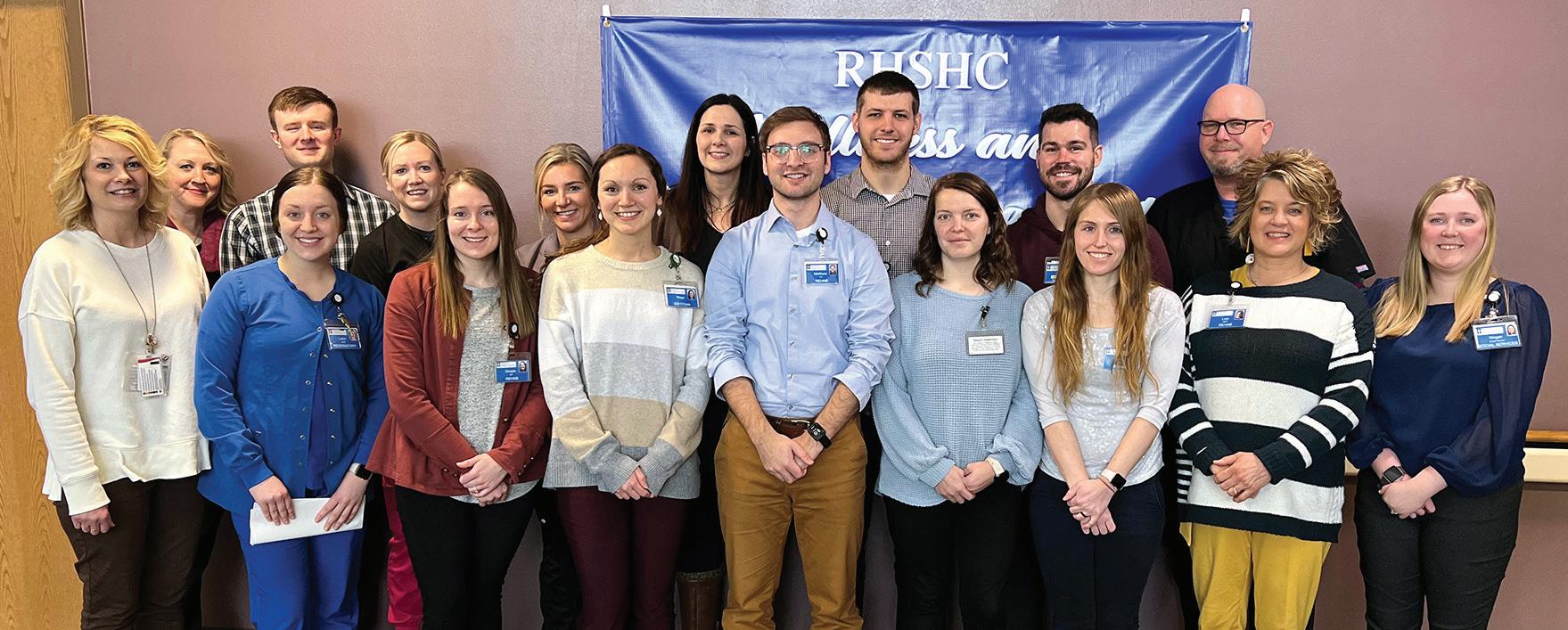








ONE HUNDRED YEARS
AGO: The commencement at Decorah High School will be later this month. A class of 57 will graduate in the class of 1924. Festivities will start with the Baccalaureate service on Sunday evening at 7:30 o’clock at the Congregational Church. Tuesday and Wednesday (May 20 and 21) the high school senior class will present the play “Seven Keys to Baldplate”. Commencement is Thursday night, May 22, at 8 p.m. in the high school auditorium. The main address will come from Thomas A. Knott of the University of Iowa. This year’s class is the largest that has ever been graduated from the Decorah High School.
…The grand social function called Junior-Senior Reception, was held recently with a banquet and dance. About 124 people were served. The decorations were the finest ever; and were prepared by a good committee. Kjome’s capable orchestra presented the dance music.
…Stores will be closed for the big baseball game between Luther College and Valparaiso on May 15 at 3:30 p.m.
...The Anti-Saloon League is putting pressure on all candidates for congress this spring. Prohibition will be a big talking point in the upcoming election.
…Ivan Arneson of Decorah is the new marble champion at the public schools tournament.
…About 10,000 trout have found a home in Winneshiek County according to Game Warden Bucknell.
…FRONT PAGE NEWS: A large number gathered at the home of Mr. and Mrs. Thurston Kjome and tendered them a miscellaneous shower in honor

The Decorah Area Chamber of Commerce gang gathered about 30 years ago in this throwback photo. Pictured back row, from left: Ken Vandeberg, Jim Lillibridge, Dave Hatting, Norm Smith, Erik Anundsen, Joe Bouska and Bill Sepic; and in front from left: Carroll Sunde, Mugs Walter, Roger Huinker, Maureen Yahr and Jerry Donlon. Oh what memories! (From the Driftless
of their April marriage. A very pleasant evening was spent, and a delicious lunch was served.
…In other news … Ed Jackson sheared some sheep for Tollof McConnel last Tuesday afternoon near Bluffton.

NINETY YEARS AGO: Make your mother’s Mother’s Day extra special with a long-distance telephone call.
…The senior class at Fort Atkinson School will present the play “Poor Father” in late May. Stars in the cast are Clarence Reihle, Eugene Meyer, Paul / Koch, Francis Smith, Harry Brandt, Ambrose Herold, Helen Neuzil, Vivian Moser, Grace Puffer, Gertrude Rausch, Gertrude Boyle and Madonna Sattler.
…George Hexom and pupils at Happy Hollow closed out a very successful year in the school last Friday with a picnic dinner and program. A good number of ladies in the district attended for event, and a very enjoyable time was reported by all.
…There has been a request for aid in fixing the road in Glenwood Township between the Upper Dam and Bolson Bridge. Other repairs are needed to the road between Highlandville and Quandahl. The Commercial Club is asking for
donations for the improvements for these strips of roadway.
…The Des Moines Register’s large new airplane, called “Good News II”, is coming to the Northwestern-Luther ball game. The plane is expected arrive here about noon on Thursday. Aviator Clarence Kvale of Decorah will meet the plane in the air in the vicinity of Decorah and pilot the visiting plane to the landing field on the Finn Farm, located one mile east of Decorah.
…Sheriff Graff arrested a local gent after he came into contact with a bottle in the man’s hand while they were greeting one another on the streets of Decorah. Four bottles of liquor were confiscated from the manone in each hip pocket and two in his socks. The bottles were being tied tightly with rubber bands.
…A self-invited guest arrived at the Decorah Elks Club the other evening. A Jersey Cow had been waiting patiently near the entrance for some time for her owner to emerge, but became impatient and entered the club through a wide open door (which had been opened due to the hot weather). Bossy traveled up the stairs to the second floor and fairly flabbergasted her master when she came into view. Shortly afterward, the cow was on her way homeward.
…A record-breaking heat wave has been in progress these days, with temperatures in midMay reaching 95 degrees.
Alzheimer’s Foundation of America announces ‘Gardening With Grandma’ New tool helps teach children about Alzheimer’s
The Alzheimer’s Foundation of America (AFA) announced a new educational tool to help adults discuss Alzheimer’s disease with young children in an age-appropriate way. “Gardening with Grandma: An Alzheimer’s Story for Children and Their Families” is an educational children’s book created by AFA as a resource for adults.
“When Alzheimer’s enters a family’s life, it often brings many questions—children especially may not understand what is happening or why their loved one is behaving a certain way,” said AFA President & CEO Charles J. Fuschillo, Jr.
“This educational tool gives adults a way to explain Alzheimer’s disease to a child in an age-appropriate way, help them understand brain changes, pro-

vide tips on how to engage with their loved ones, answer questions and show them that love is a bond that Alzheimer’s can never break.”
“Gardening with Grandma” is designed to be a teaching tool adults can use to have a conversation with a child about Alzheimer’s disease. The book follows eight-year-old Luke’s learning experience as he finds new ways to connect with his grandmother who has Alzheimer’s disease. Grandma, who is early in her diagnosis, is able to share with him that even though she has a disease that affects her memory and behavior, she still loves him. The story unfolds as Luke adjusts to her move to a new home with more support.
“Gardening with Grandma” also includes a special mes-

sage to adults to help them have meaningful, age-appropriate conversations with a child when a special person in their life has Alzheimer’s, including guidance on how to initiate the conversation, sample questions to ask the child, and tips to help them better understand. AFA’s Helpline, staffed entirely by licensed social workers and available seven days a week, can also provide information about discussing Alzheimer’s disease with a child or assistance with other Alzheimer’s-related questions.
The helpline can be reached by phone at 866-232-8484, web chat at www.alzfdn.org or text message at 646-586-5283. The web chat and text messages features can serve individuals in more than 90 languages.
“Young children, in particular, may sense something is amiss when a family member has Alzheimer’s, but may not be able to understand the subtle changes that are occurring early on in the disease progression,” said Jennifer Reeder, LCSW, AFA’s Director of Educational & Social Services. “Reading this book together with your child and having a conversation can help make them more understanding and compassionate, less fearful, and ultimately learn new ways to communicate with their loved one.”
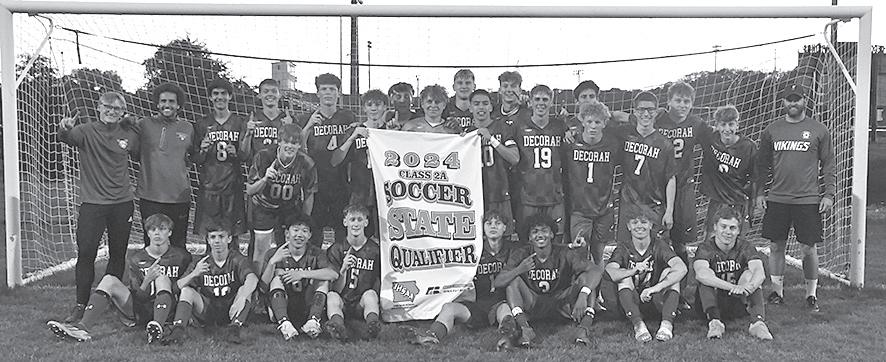


Mabel-Canton
Monday, May 20, the Mabel-Canton softball team dropped its postseason opener 10-4 to Lewiston-Altura on the road to wrap up the 2024 season. The Cougars went 9-5 in the Southeast Conference, earning third. Overall, the squad was 5-12.
The Mabel-Canton baseball team rolled on in the postseason with a first round 2-0 win over third seed Kenyon-Wanamingo Wednesday, May 22, on the road. The Cougars faced off with Spring Grove Saturday, May 25.
Spring Grove
In softball action, the Lions fell to Hayfield, 10-0, in the opening round of the postseason Monday, May 20. The Spring Grove softball team ends the season with a 5-12 overall record, going 5-7 in the Southeast Conference to finish fifth.
Tenth seeded Spring Grove surprised fourth seed Wabasha-Kellogg Wednesday, May 22, coming off the home baseball diamond with a 10-4 win. The Lions faced Mabel-Canton in round two Saturday, May 25.
Waukon
The Waukon baseball team kicked off the season on the road Wednesday, falling to Starmont, 3-0. Thursday, the Indians hosted Waverly-Shell Rock in a varsity doubleheader, finishing the night with a split decision. Waukon lost game one 6-4 and bounced back in the nightcap to win, 5-2.
It was a 13-0 win over Kee Thursday for the Indian softball team in New Albin.
Kee
Playing at Riverfront Stadium in Waterloo, the Kee baseball team (3-1) shut out Hampton-Dumont-CAL (0-5) Wednesday, 4-0. The Hawk softball team hosted Waukon Thursday in New Albin in its season opener falling 13-0.
Decorah
A day later than scheduled the Class 1A boys’ state individual and doubles tournament got underway Wednesday. The doubles team of Liam Chamberlain and Aidan Nalean-Carlson got knocked out on day one, while Caden Branum advanced all the way to the finals for the second year in a row to finish runner-up.
The Decorah boys’ soccer team punched its first ticket to state since 2010 with a 3-0 home win over Central DeWitt. The Vikings will play Perry in the Class 2A quarterfinals Wednesday, May 29, at 1:20 p.m., on Field 7 at the Cownie Soccer Complex in Des Moines.
Maria Riveros represented the Decorah girls’ golf program at the state meet at Pheasant Ridge Golf Course in Cedar Falls, wrapping up day one in a tie for eighth place with a 79 for her first 18 holes.
Thursday, the Viking baseball team made the short trip to Crestwood, sweeping the varsity doubleheader, 13-1 and 12-1.

In softball action, Decorah hosted a non-conference game Thursday against Turkey Valley, coming away with a close 2-0 victory in the opener. Here Viking first baseman Sidney Kipp stretches to make the catch as Jenna Throndson races to the bag. (Driftless Multimedia photo by Becky Walz)
At its May meeting, the Board of Directors of the Iowa Girls High School Athletic Union approved the move to two classes for the 2024-25 girls’ wrestling season.
The move will place the 64 largest wrestling schools into Class 2A, with the remaining schools competing in Class 1A.
Wrestlers will compete to qualify for the state tournament at regional meets across the state on Friday, Jan. 31, 2025. There will be eight regional state qualifying sites hosted by schools for both Class 1A and 2A.
The top 16 qualifiers from each weight class will qualify for the 2025 Girls State Wrestling Tournament, which will be held Feb. 6-7 in Xtream Arena in Coralville. The Girls State Wrestling Tournament will remain a two-day tournament, with separate sessions for each class on Feb. 6 and combined sessions for the championship sessions on Friday, Feb. 7.
“The rapid rise of participants in girls wrestling has exceeded even our expectations,” said IGHSAU Executive Director Erin Gerlich. “Adding a second class is the next building block in our efforts to continue to help the sport grow. The hope is that the addition of a second class will encourage more schools to add girls’ wrestling programs.”
The IGHSAU sanctioned girls’ wrestling in 2022 and has been a one-class tournament since beginning competition in 2023. In 2024, 204 schools sponsored a girls’ wrestling program, while 61 other schools were listed in cooperative sharing agreements.

Not
celebrates first graduates of RCIS Earnand-Learn agriculture apprenticeship program who complete the program are promoted to their next full-time role at
Northeast Iowa Community College (NICC) and Rural Community Insurance Services (RCIS), the crop insurance business of Zurich North America, are collaborating to train individuals for professional careers in the crop insurance industry through an earn-while-youlearn apprenticeship model.
Through the two-year program, RCIS apprentices split their weeks between Agriculture Business coursework at NICC and on-the-job training at RCIS. RCIS apprentices earn full-time pay and benefits while pursuing an associate’s degree at NICC. RCIS covers the cost of tuition. Apprentices
Waukon’s Robey Memorial Library is hosting its “Summer Explorers” hands-on programs beginning in June in the library’s community room.
The International Owl Center of Houston, Minn., will present the “Build an Owl” program featuring a live owl on June 5 from 10:30 to 11:30 a.m.
Children’s author Kristen Halverson will host “Ocean Rescue”, featuring a story and ocean conservation activities on June 19 from 10:30 to 11:30 a.m.
The program will continue in July and August.
Children and families are welcome to attend these programs. Registration is not necessary unless attending in large groups.
For more information, contact the library at 563-568-4424 or www.waukon.lib.ia.us.


Thirteen apprentices represent the first cohort to complete the online program, and nine traveled to northeast Iowa to participate in graduation on May 9. The online coursework format allows students to enroll from anywhere in the US.
Students from the first cohort
The Winneshiek County Conservation Board recently voted to increase camping fees at county-owned campgrounds.
Beginning June 1, camping rates at Lake Meyer and Kendallville Campgrounds will be raised to $15 for non-electrical sites and $20 for electrical sites.
live in California, Washington, North Dakota, North Carolina, Iowa, Minnesota, Wisconsin, Illinois and Ohio. RCIS writes crop insurance in all 50 states, with around 3,700 agents and 1,500 team members across the US. RCIS and the Zurich Office of Apprenticeship selected NICC as their agriculture education provider after a nationwide search.












Campground rates at these two parks have not increased in
Lake Meyer, Kendallville campgrounds raise rates, offer free Wi-Fi over 20 years, and rates are now being raised due to increasing costs of operation. Additionally, free wireless internet is now available at both campgrounds. Campers can ask the campground host for the network name and password to access the free Wi-Fi. For more information, call 563-534-7145.











































 By Katie Drewitz, University of Minnesota Extension
By Katie Drewitz, University of Minnesota Extension




















The second annual University of Minnesota Houston County Extension Master Gardener volunteers’ plant sale will be held Saturday, June 1, from 9 a.m. to noon at the La Crescent Community Building, 336 South 1st Street, La Crescent, Minn.


























Quality perennials, annual flowers, vegetable plants, houseplants and more will be available for purchase. The Houston County Extension Master Gardener volunteers will be available to answer questions about the plants you are purchasing and your gar-


dens at home. All proceeds support the efforts of the Extension Master Gardener volunteer program in Houston County. Extension Master Gardener volunteers educate the public about a variety of horticulture subjects using current research-based resources. This educational effort is designed to enhance quality of life and promote good stewardship of the environment. Extension Master Gardener volunteers complete many hours of volunteer work each year, providing a valuable in-kind contribution to Minnesota. For information, call the Houston County Extension office at 507-725-5807 or

























Join our
team and help maintain Seed Savers Exchange’s facilities, grounds, and equipment. In the winter months, this position helps in our Seed House with order fulfillment duties.

SEEDSAVERS.ORG/JOBS FOR MORE DETAILS AND OPEN POSITIONS!

To apply, please email a cover letter, résumé, and the contact information for three references to jobs@seedsavers.org
Please include the name of the position you are applying for in the subject line of your email.

You may also contact Peggy Miller at 563.387.5653. Seed


This position is responsible for the efficient, timely, and accurate coordination of all incoming and outgoing shipments. The ideal candidate should be a detail-oriented individual with proficiency in shipping and business software.
FOR
DETAILS AND OPEN POSITIONS!
To apply, please email a cover letter, résumé, and the contact information for three references to jobs@seedsavers.org

























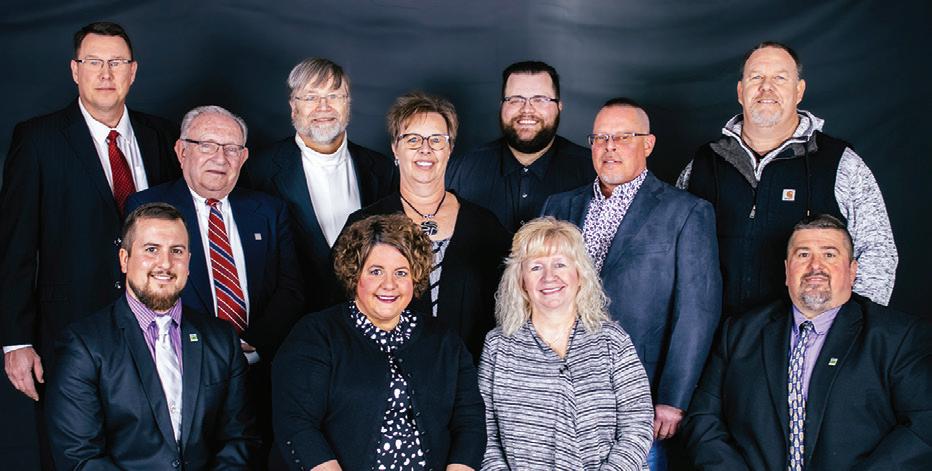




































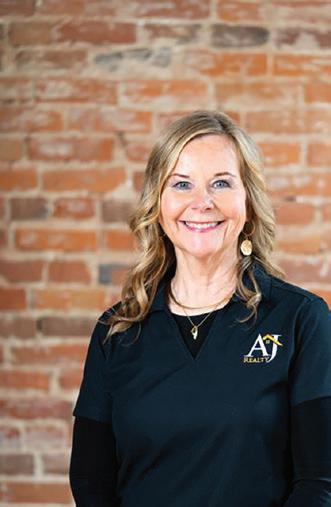











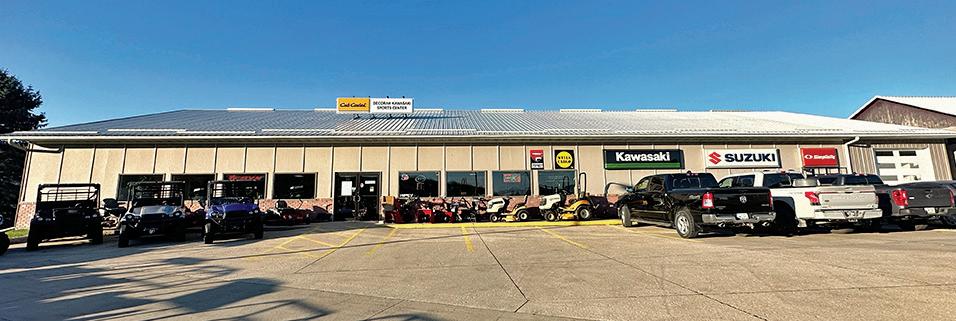



















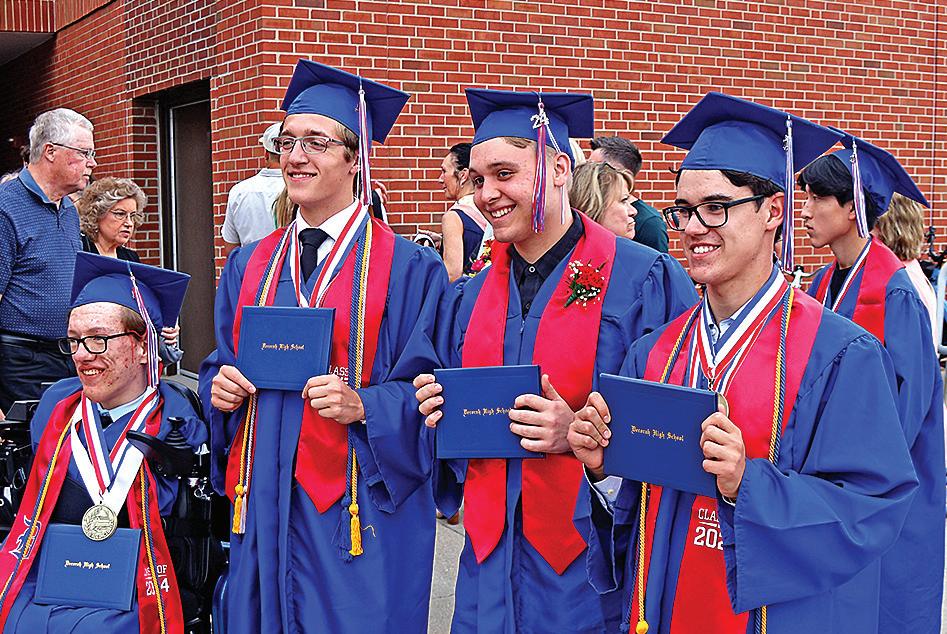
Decorah, South Winneshiek and Turkey Valley schools, as well as Luther College held their 2024 commencement ceremonies on Sunday, May 19. Photos from each school’s graduation can be found in the May 23 Public Opinion newspaper. ABOVE: Graduates and friends smile for photos with their diplomas following the graduation ceremony at Decorah High School.(Driftless Multimedia photo by Zach Jensen)
NICK LEMBEZEDER of Decorah is one of 20 students at the University of Iowa serving as a student speaker at commencement events on campus in May. He spoke at the College of Public Health Commencement May 11.
KIERSTYN ROGER of Waukon, a communication sciences and disorders major at Augustana College in Rock Island, Ill., was nominated to submit a “More Than I Imagined” profile by Dr. Ann Perreau, associate professor of communications and disorders. Annually, faculty members nomi-
nate Augustana’s seniors who have achieved remarkable academic or personal growth to appear in the college’s “More Than I Imagined” series. After graduation, Rogers will be a student in Purdue University’s Doctorate of Audiology program.
BRITAIN FERRIE of Cresco, KORYN BAKKEN of Decorah and CHRISTOPHER BIGALK of Cresco, were among the 17 Wartburg College students accepted into the college’s Teacher Education Program.
KARISSA SCHMIDT of Wau-
coma has been named to the Dean’s List at Palmer College of Chiropractic’s Florida Campus in Port Orange, Fla.
AMY HENRY of Postville has been named to the Dean’s List at Palmer College of Chiropractic’s Main Campus in Davenport.
CHASE ADAM of Calmar,
LANDEN BERGAN of Cresco and ANGELA BERNS of Dorchester were all named to the President’s List for academic achievement at Western Technical College in La Crosse, Wis.




















